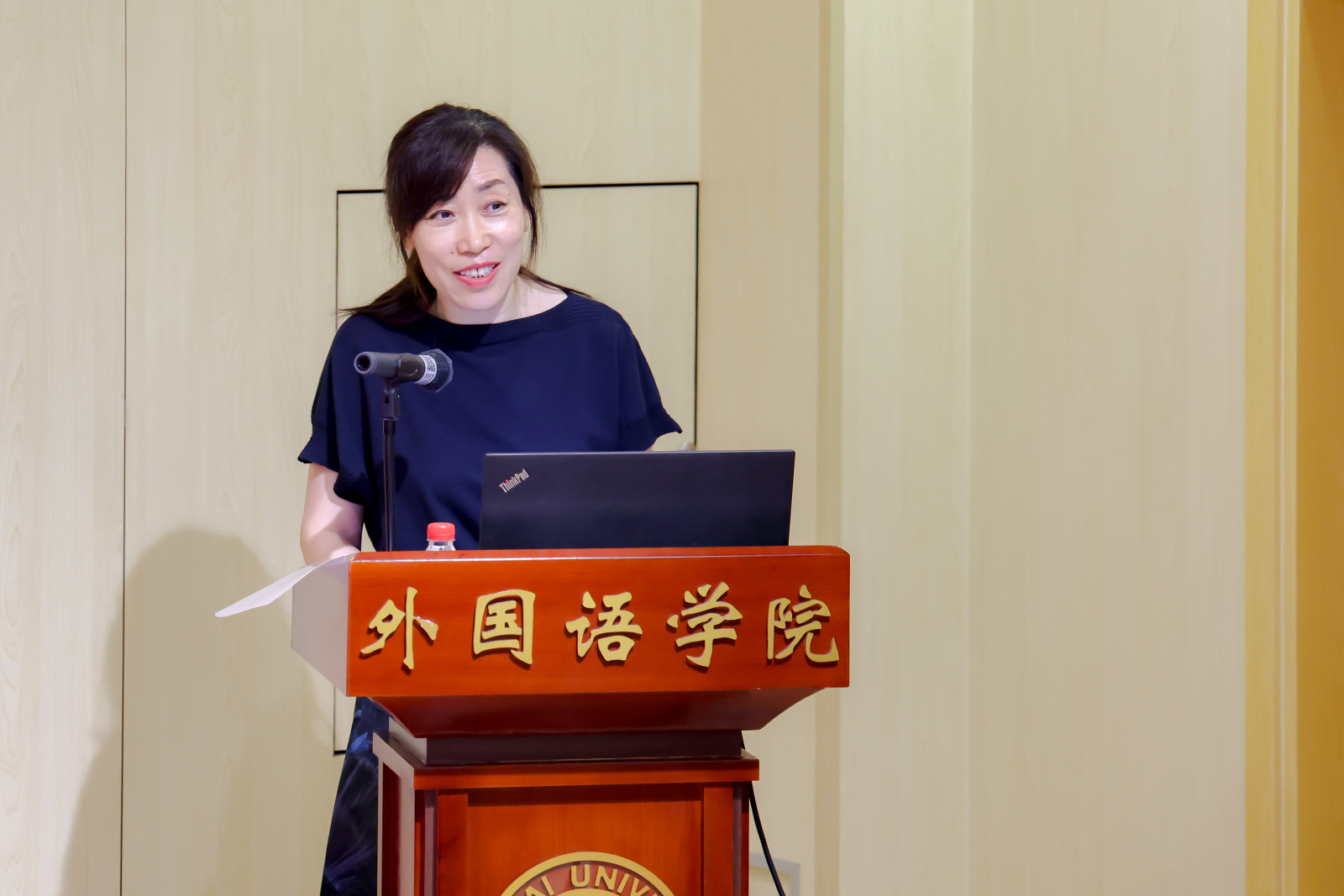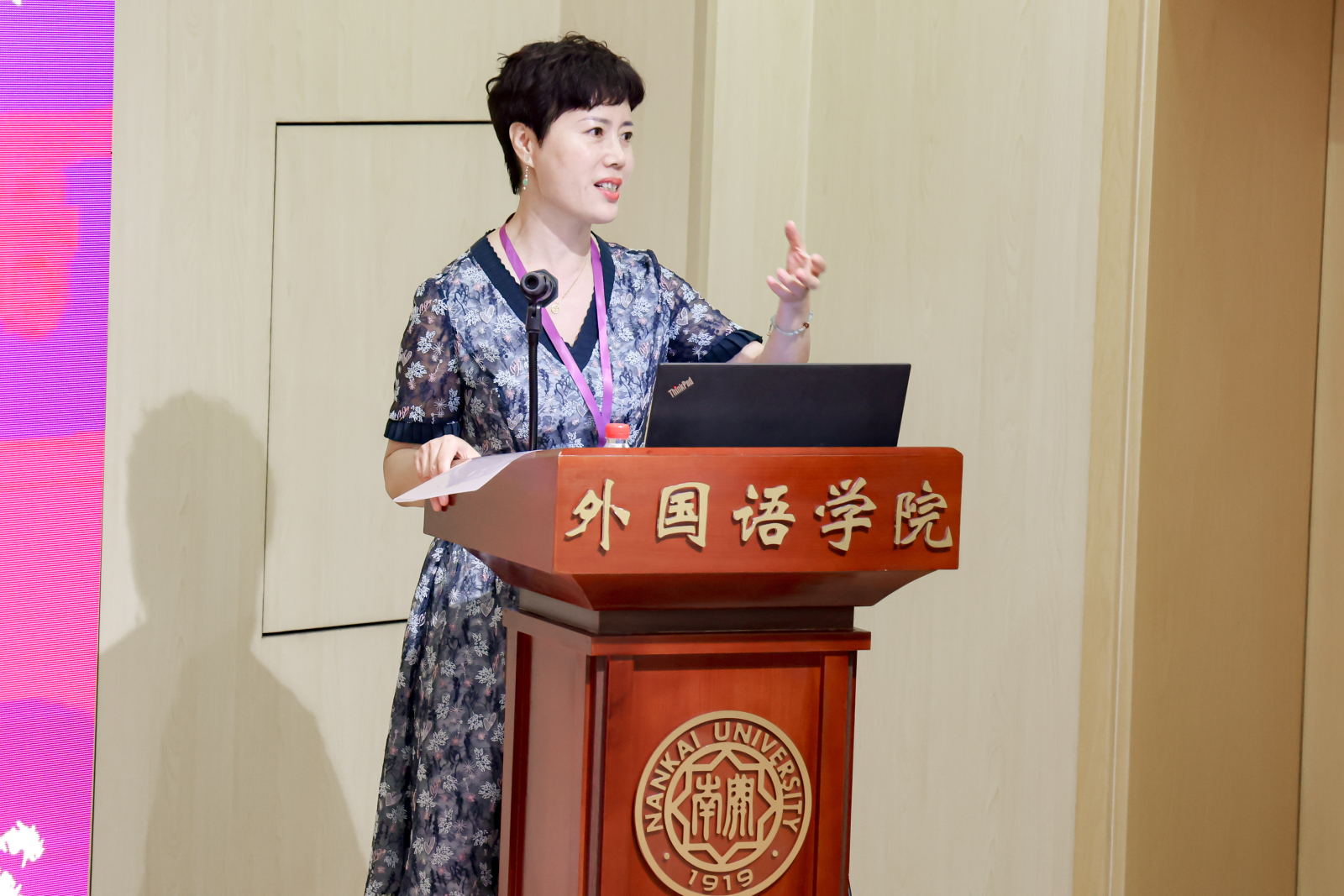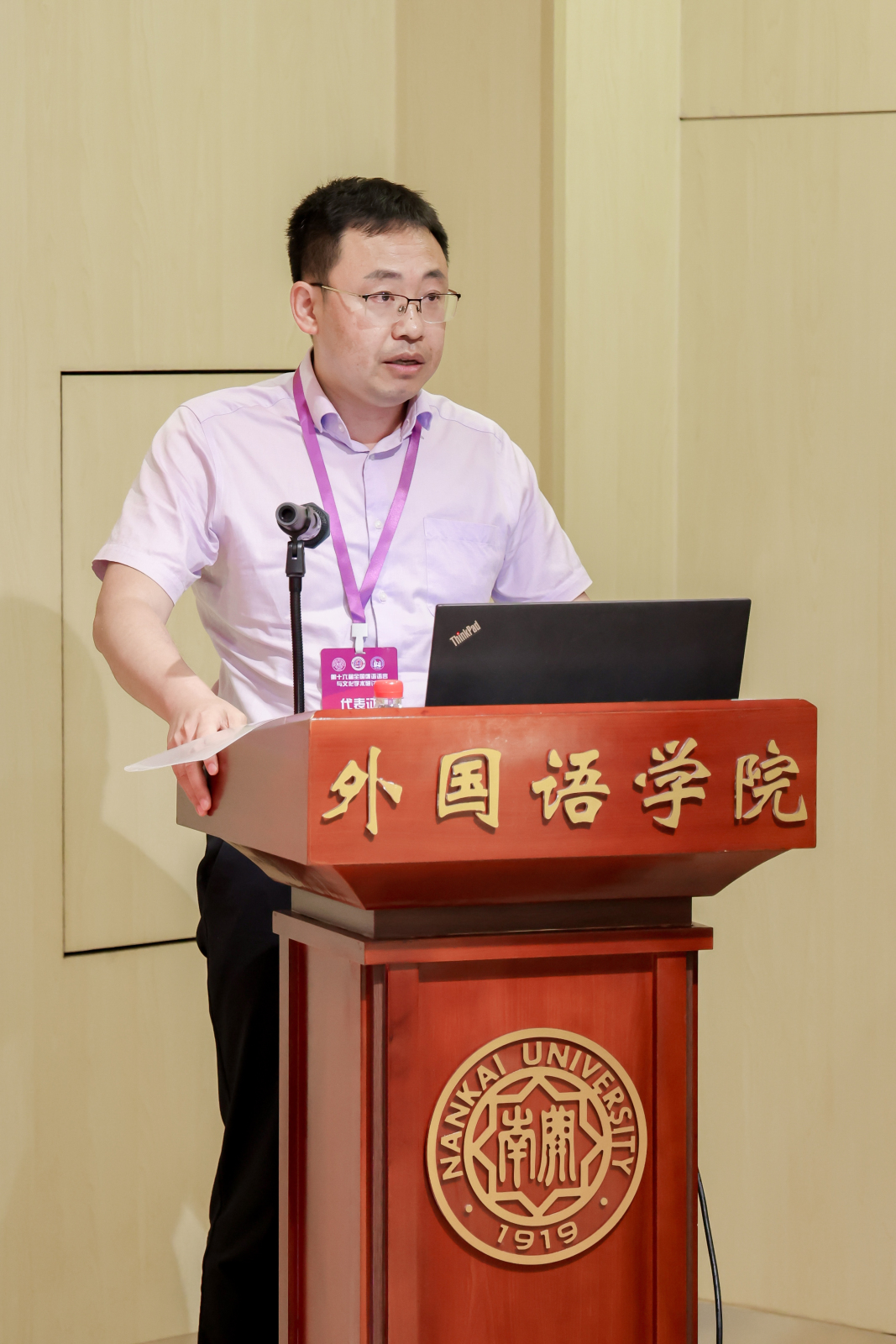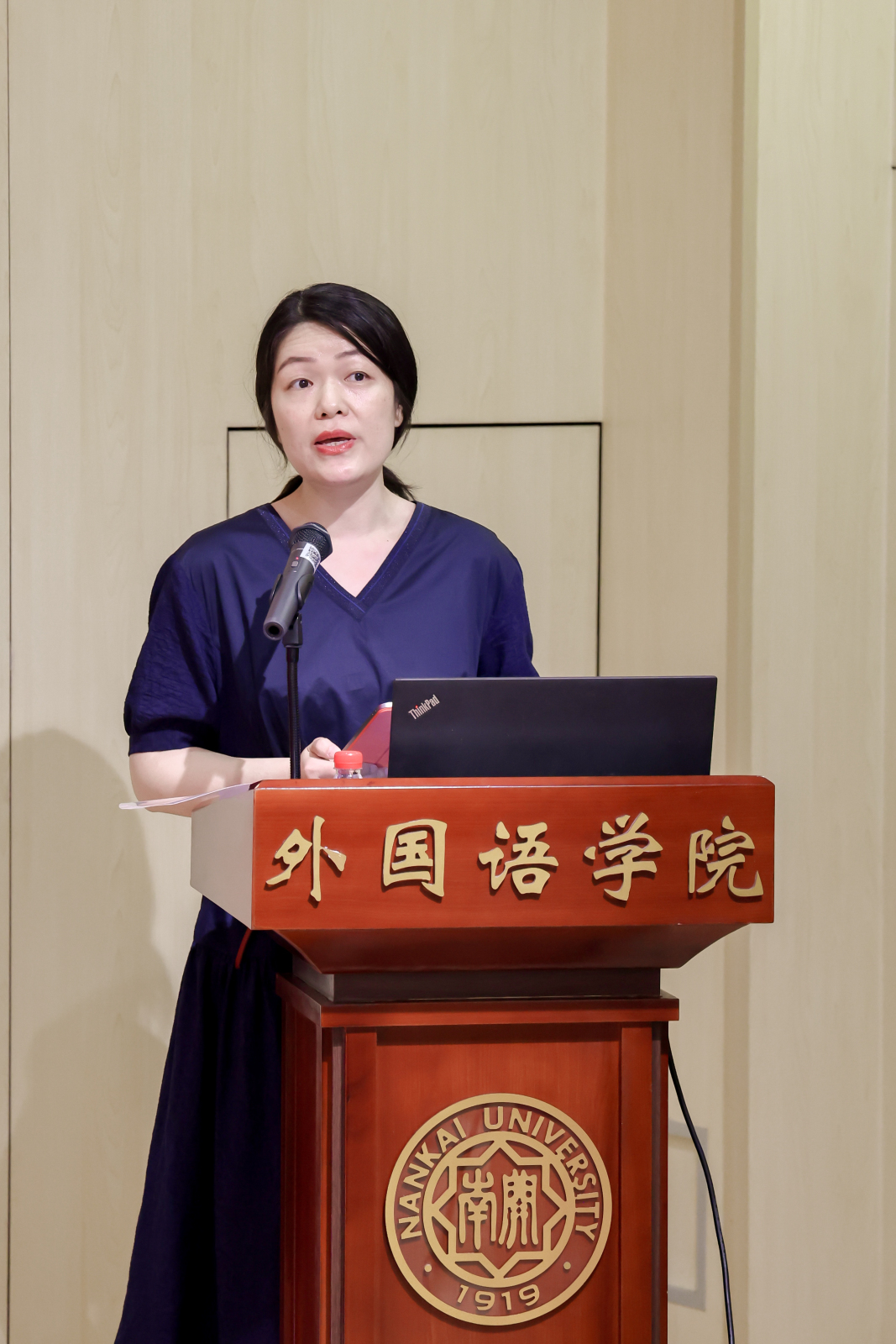From June 17 to 18, the16th National Symposium on Russian Language and Culture was held at Nankai University. It was jointly organized by the Russian Language Teaching and Research Society of the Chinese Association for Russian, East European and Central Asian Studies (CAREECAS), the College of Foreign Languages of Nankai University, and the Foreign Language Teaching and Research Press. Themed "Cultural Communication and Global Discourse in the New Era: Exploring New Ways of Russian Language and Cultural Study", the symposiumattracts more than 120 experts and scholars in the field of Russian language and culture researchfrom over 50 renowned universities across China.
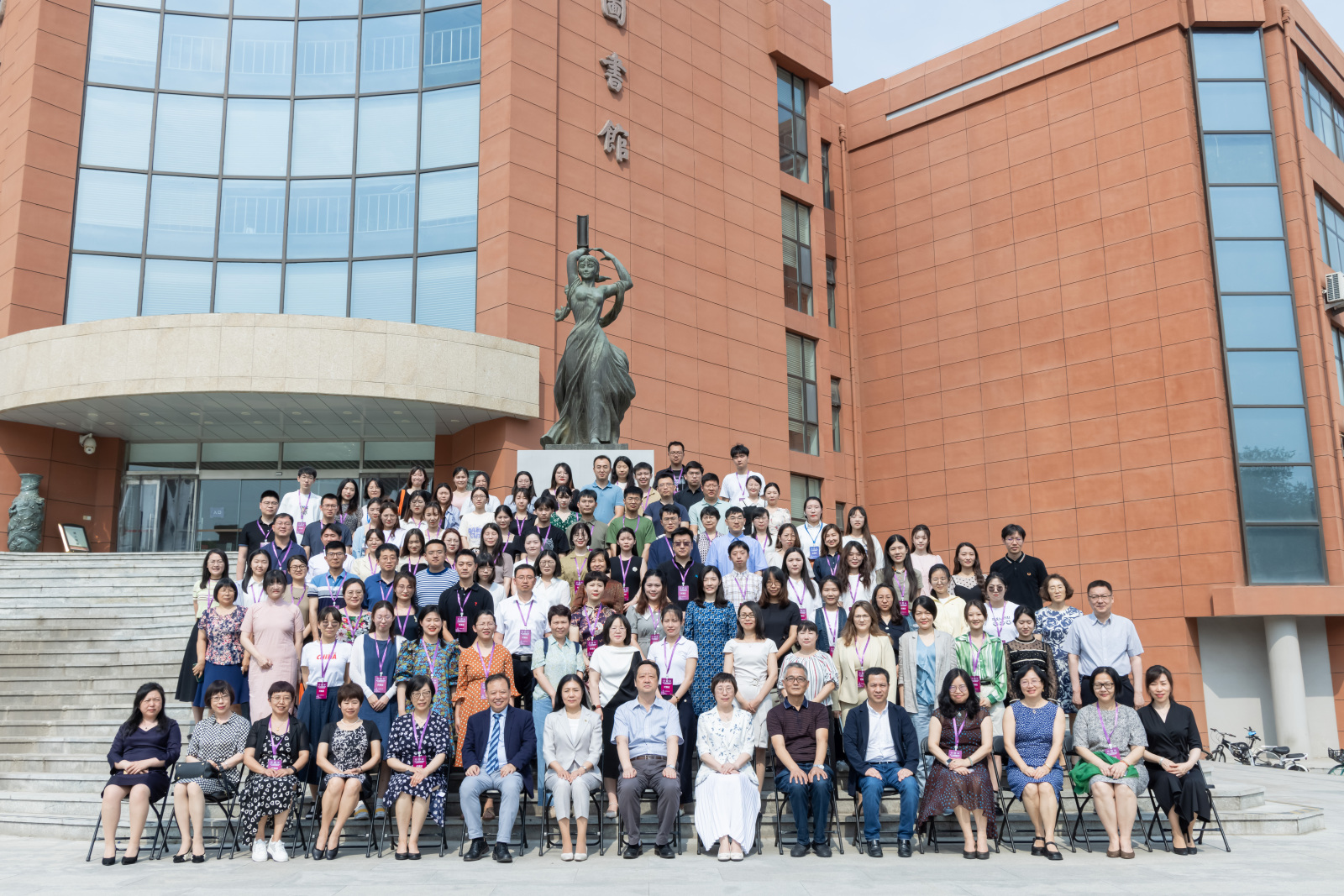
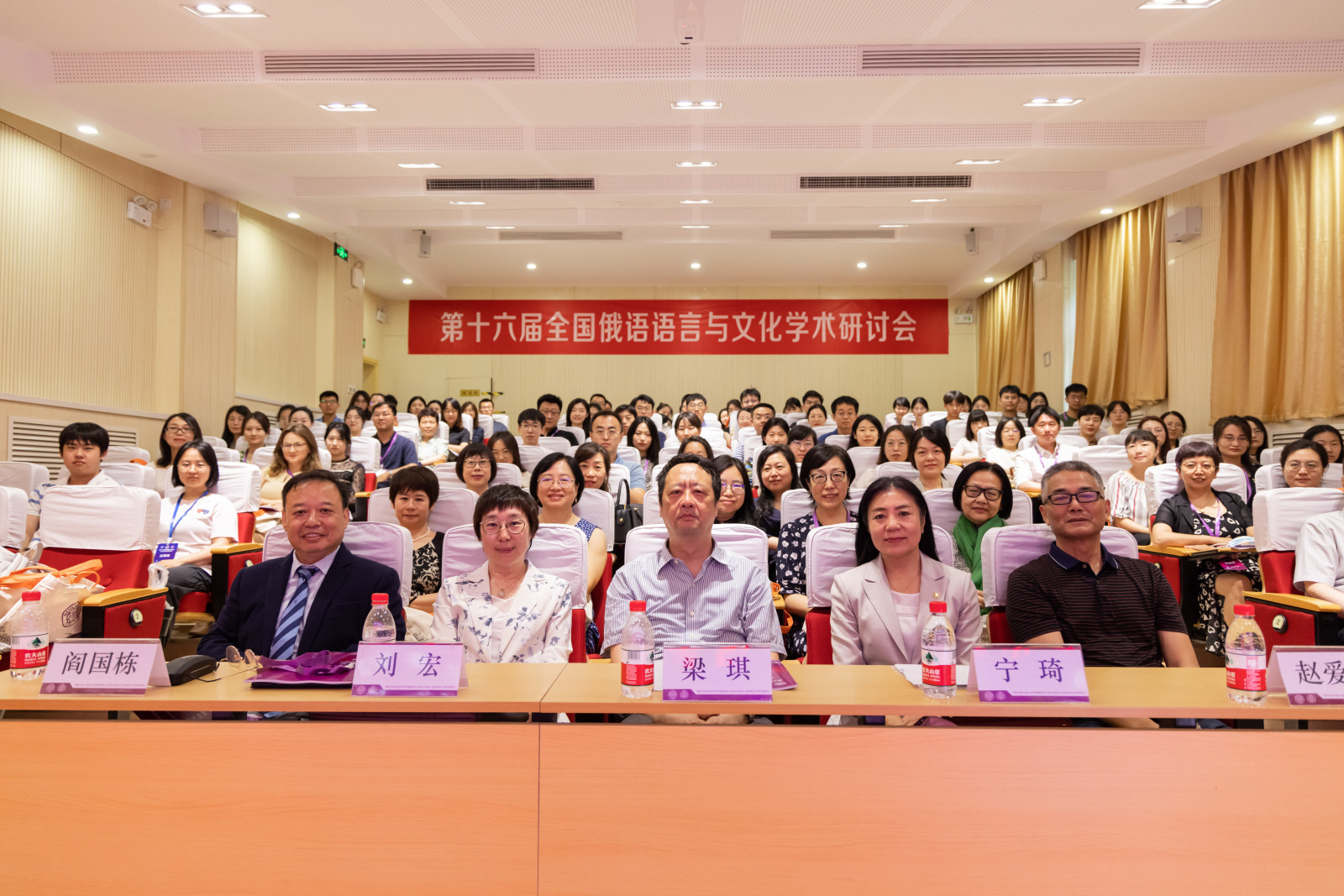
The opening ceremony
Thesymposium raised the curtain on the morning of June 17 in the academic lecture hall of the College of Foreign Languages of Nankai University. Liang Qi, DeputySecretary of the CPC Nankai University Committee, Professor Ning Qi, President of the Russian Language Teaching and Research Society of CAREECAS and Vice President of Peking University, and Professor Liu Hong, Director of the Russian Language Teaching and Learning Steering Subcommittee under the Ministry of Education and President of Dalian University of Foreign Languages attended the opening ceremony. The ceremony was presided over by Professor Yan Guodong, Director of Overseas Sinology Research of the Chinese Comparative Literature Association and Dean of the College of Foreign Languages of Nankai University.
On behalf of Nankai University,Liang Qi welcomed the experts and scholars attending the symposium. He pointed out that the university’s foreign language discipline, boastinga good reputation at home and abroad, has a long history and profound academic accumulation. He said that the College of Foreign Languages adheres to the fundamental principle of cultivating talents through virtue and carries forward the fine tradition of the discipline. Always staying true to its original mission, the College unites the teachers and students to strive for faster and better development. At last, he wished the symposium a great success.
Professor Ning Qi emphasized that language and cultural study has always been the top priority of Russian education in China, and it is indispensable in the cultivation ofinterdisciplinary Russian talents. The theme of this seminar focuses on the development trend of world language and culture as well as that of Russian language and culture research, aiming to discuss hot and complex topics in relevant areas. This is in line with the current task of the country—"to strengthenthecapability building and effectiveness of international communication, so as to form an international voice that matches China's comprehensive national strength and international status".
Dean Prof. Yan Guodong expressed gratitude to the leaders and delegates for their presence and thanked the Chinese Association for Russian, East European and Central Asian Studies for its recognition and support for Nankai University’s Russian discipline. Adhering to the talent training concept of “foreign language expertise, humanistic literacy, international vision, Chinese affection, and Nankai characteristics” and the goal of cultivating “practitioners of foreign affairs, researchers of international issues, advocates for communication of civilizations, and providers of language services” for the country, the College aims to constantly improve the education quality andbuild it into a national base for interdisciplinary foreign-related talents. He also hoped to learn fromthe advanced experience of other universities through this seminar.
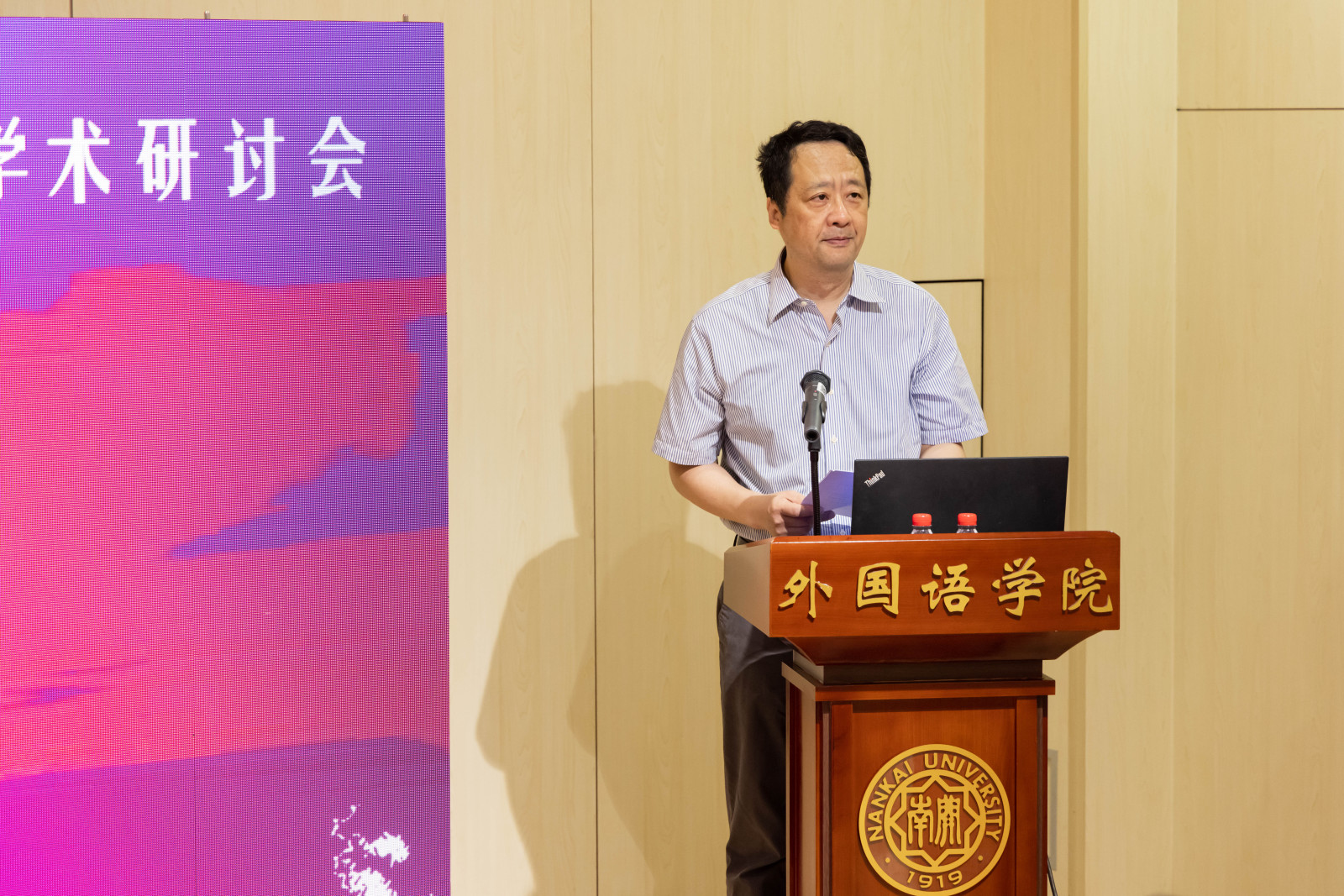
Liang Qi, Deputy Secretary of the CPC Nankai University Committee, delivers a speech
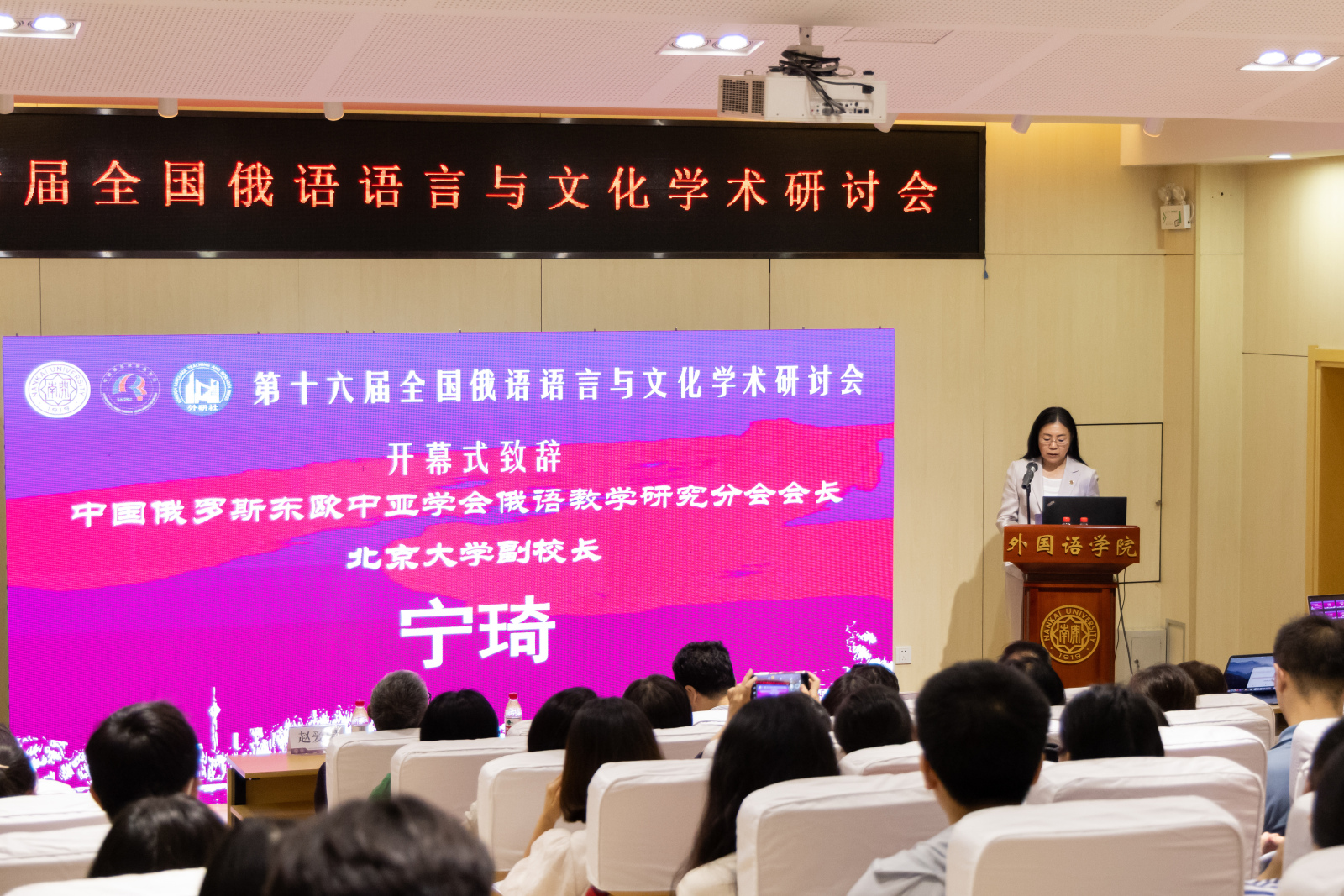
Ning Qi, President of the Russian Language Teaching and Research Society of CAREECAS, delivers a speech
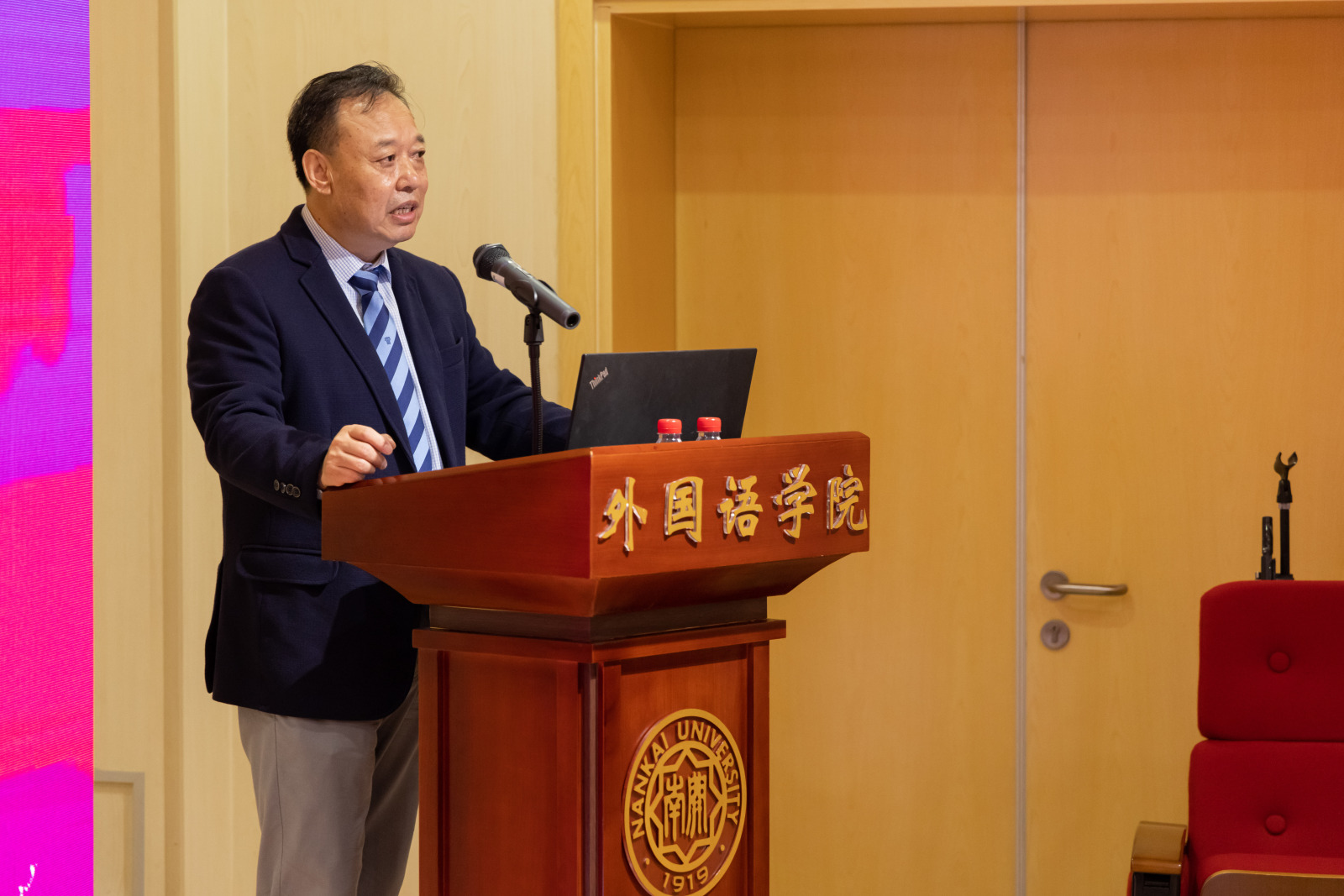
Yan Guodong, Dean of the College of Foreign Languages, delivers a speech
Keynote Report
Fifteen authoritative experts in the Russian language were invited to make wonderful keynote speeches. The presentation was held on the morning of June 17 and 18 in the academic lecture hall of the College of Foreign Languages of Nankai University. Professor Peng Wenzhao from Dalian University of Foreign Languages, Professor Liu Juan from Beijing Normal University, Professor Yang Ke from Guangdong University of Foreign Studies, and Professor Wang Lidan from Nankai University hosted the meeting.
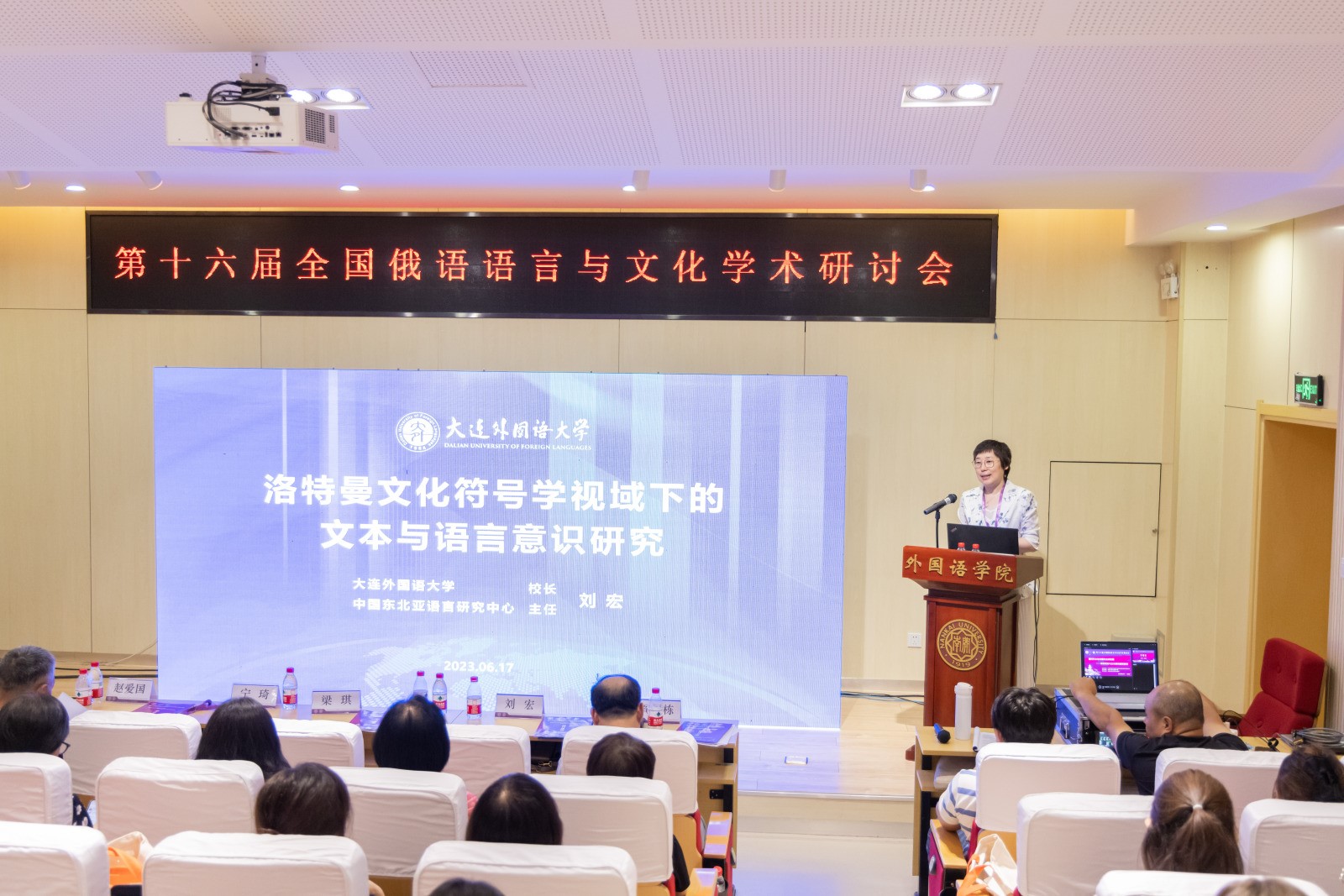
ProfessorLiu Hong
On the morning of June 17, Professor Liu Hongdelivered a report titled "A Study of Language Awareness from the Perspective of Lotman’s Cultural Semiotics", introducing the theoretical value and characteristics of Lotman and Tartu-Moscow Semiotics. Shepointed out the relationship between linguistic awareness and cultural semiotics as well as the multi-dimension and complexity of linguistic awareness research.
Professor Zhao Aiguo from Soochow University demonstrated the theoretical basis, basic principles, and operation schema of the "dichotomy of language and culture" in Russian cultural semiotics, and explained the significance of the model for the current study of Russian language and culture. Professor Huang Mei from Beijing Foreign Studies University introduced the compiling concept and structure design of A Public Speaking Course in Russian, one of the “Understanding Contemporary China” Textbook Series, and gave some suggestions on the use of the textbook.
Focusing on the anthropocentrism, linguistic trichotomy theory and the interdisciplinary multidimensional study of language and culture, Professor Peng Wenzhao from the Dalian University of Foreign Languages discussed the discourse turn of Russian language and culture study. He pointed out that the essence of anthropocentrism lies in the centrality of language, and the interdisciplinary multidimensional study of language and culture should follow the idea and path of the construction of new liberal arts.
Professor Chu Min from Peking University analyzed the national cultural meaning beyond dictionary definitions of two types of keywords (lexical words and phrases) in Russian national consciousness. Professor Li Xiangdong from Beijing Foreign Studies University made the first empirical study of the precedent of Russian language by taking an individual noun “Сталин” as an example.
Professor Yan Guodong from Nankai University delivered a report titled "Basic Issues in the History of Sinology Study in Russia", discussing the basic qualities required for the researchers andexplaining theresearch topics, methods, and results in this area.
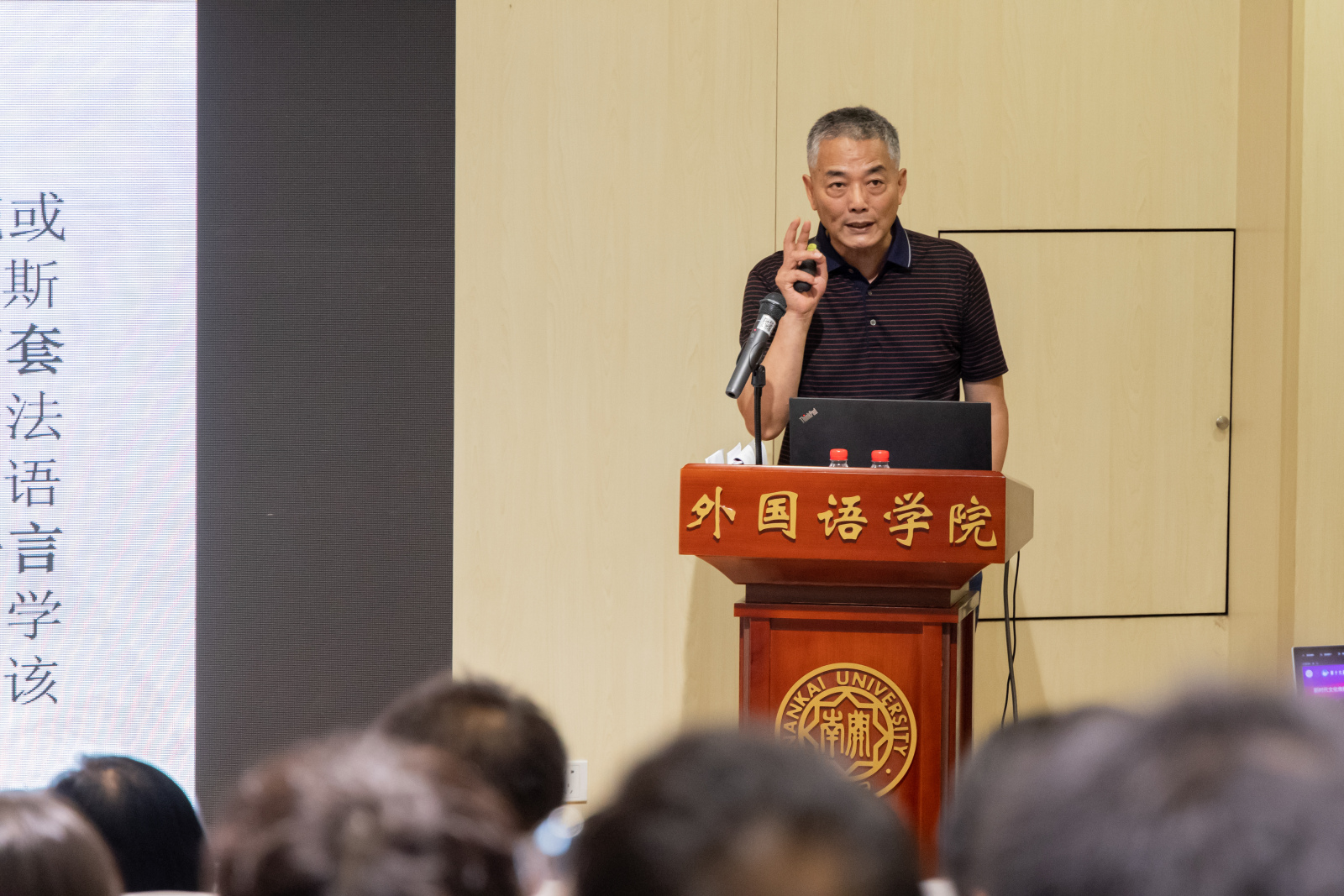
Professor Zhao Aiguo
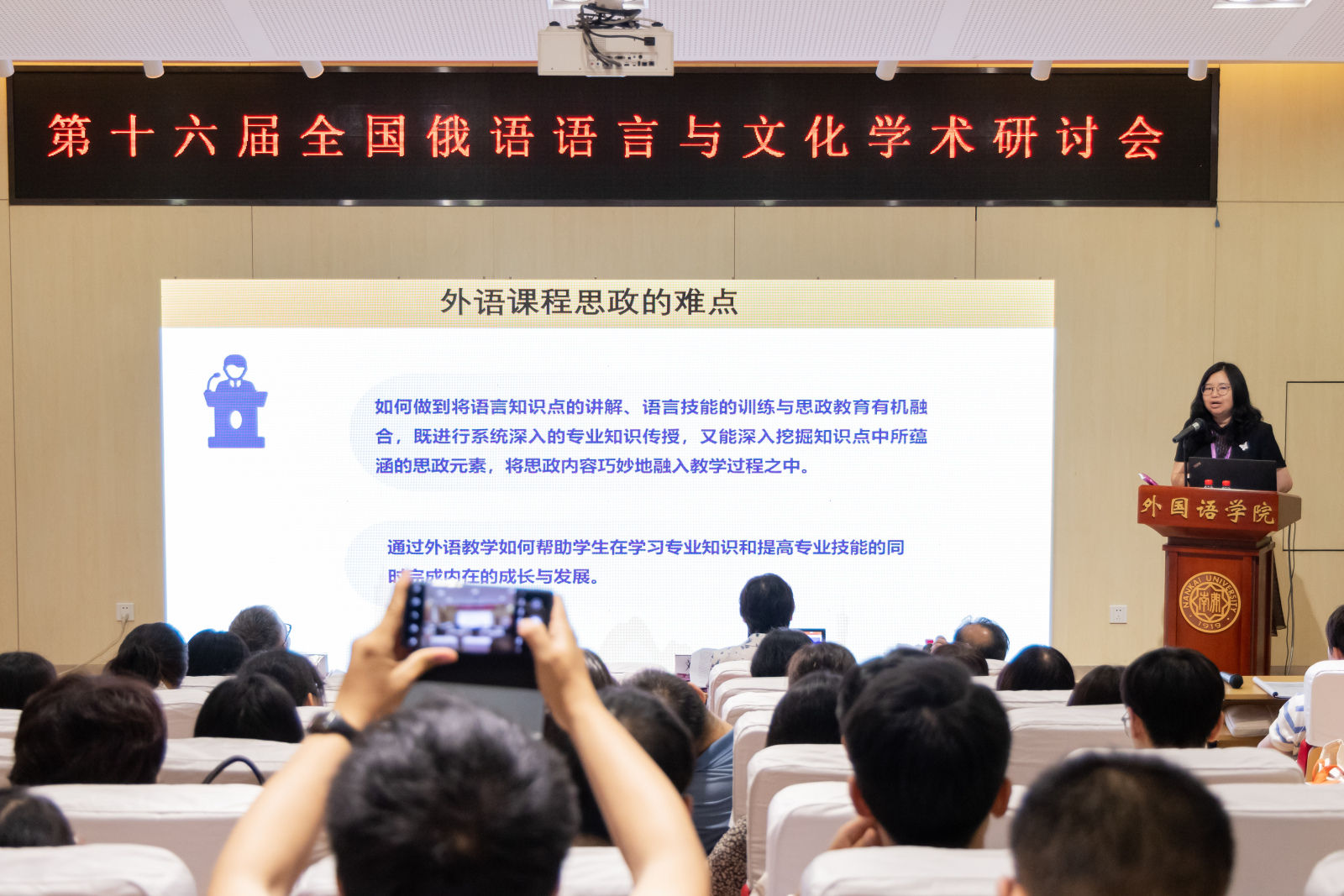
Professor Huang Mei

Professor Peng Wenzhao
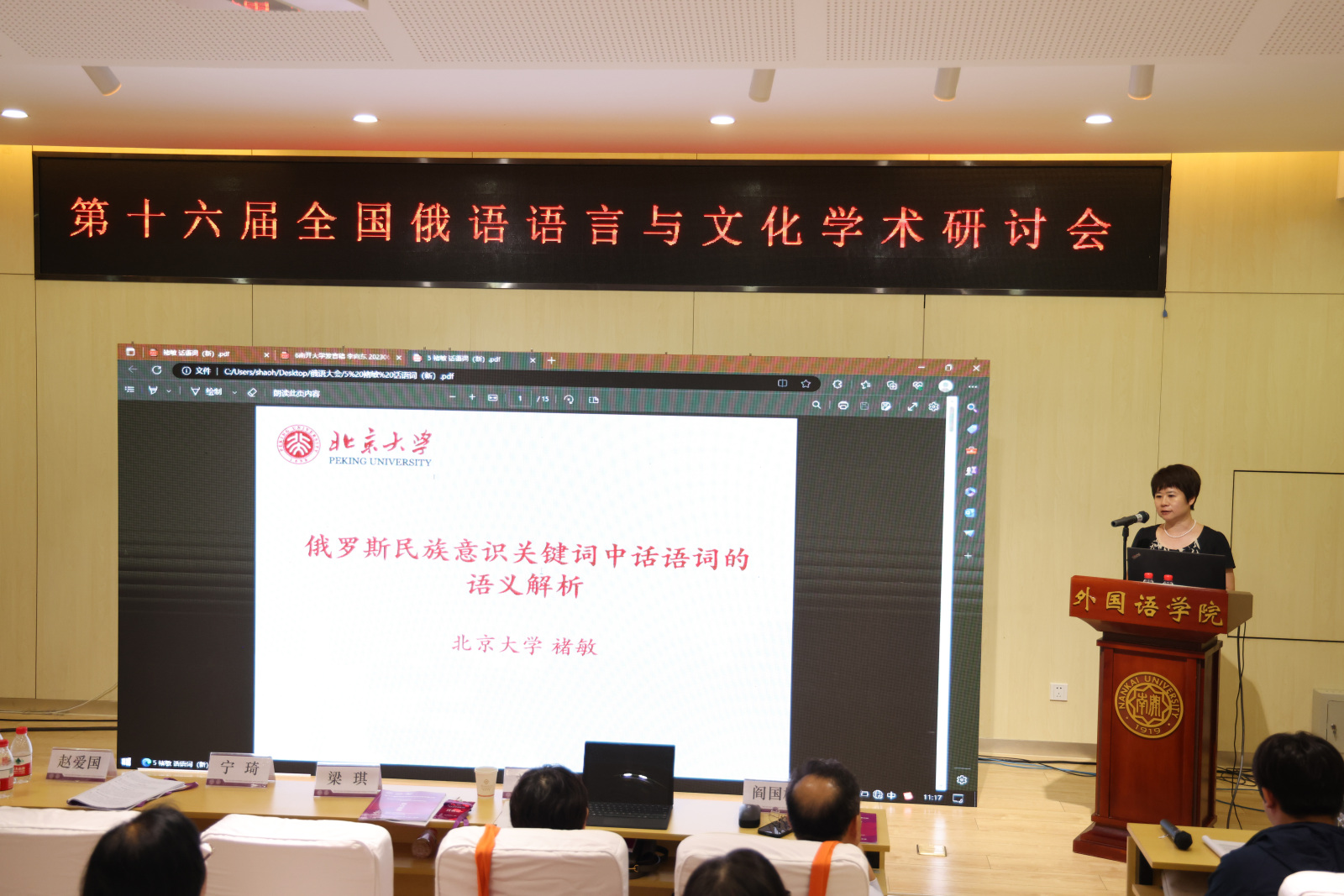
Professor Chu Min
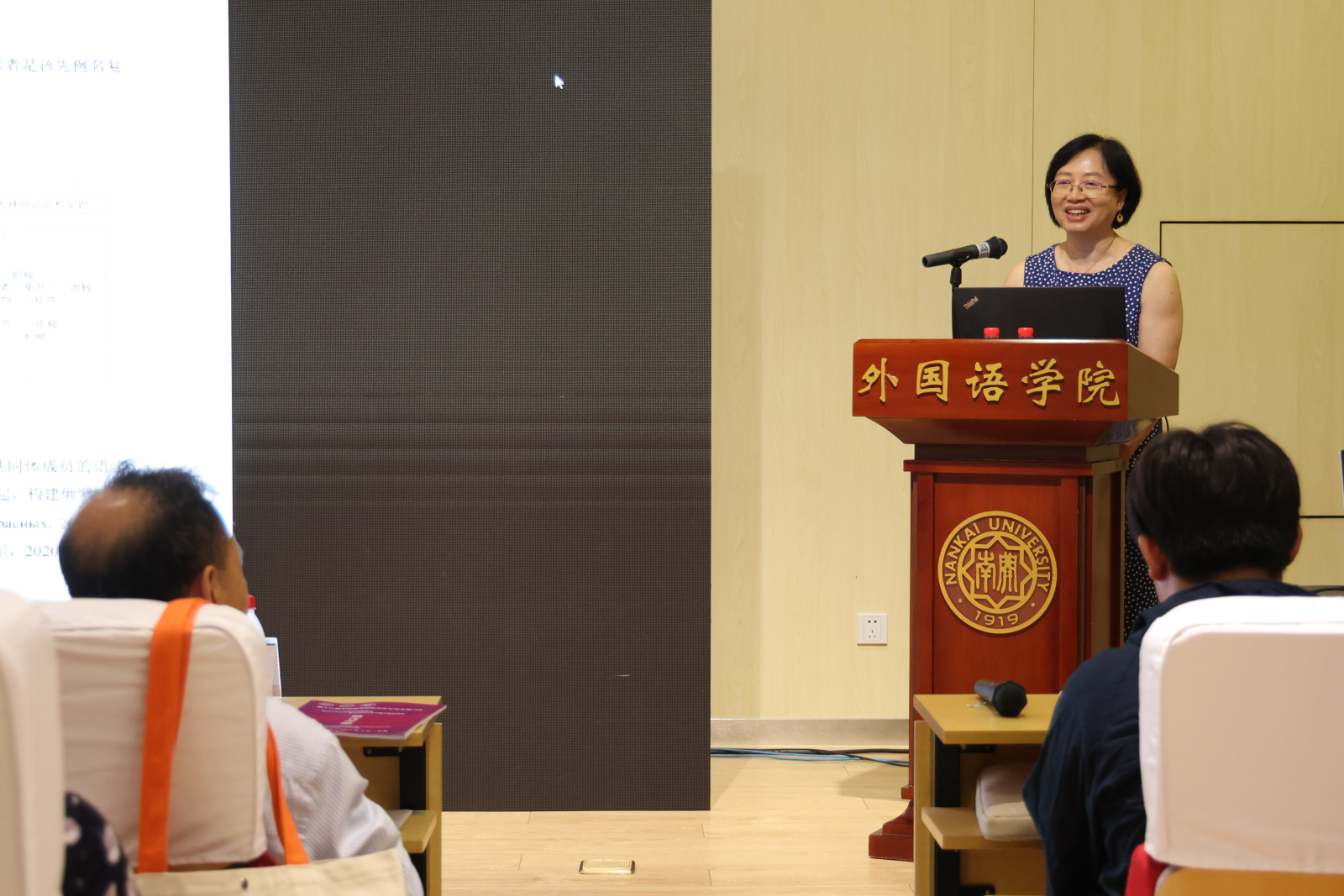
Professor Li Xiangdong
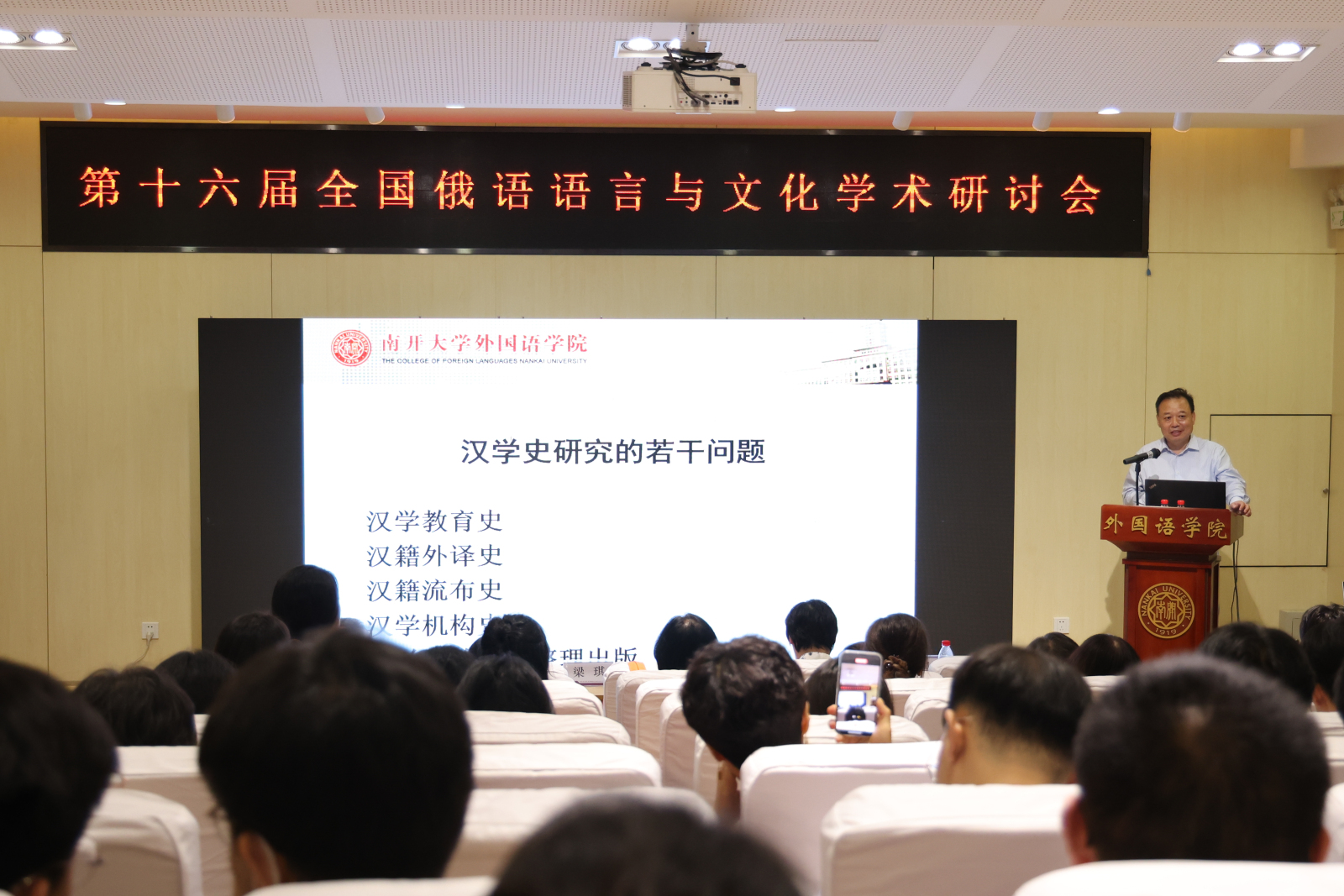
Professor Yan Guodong
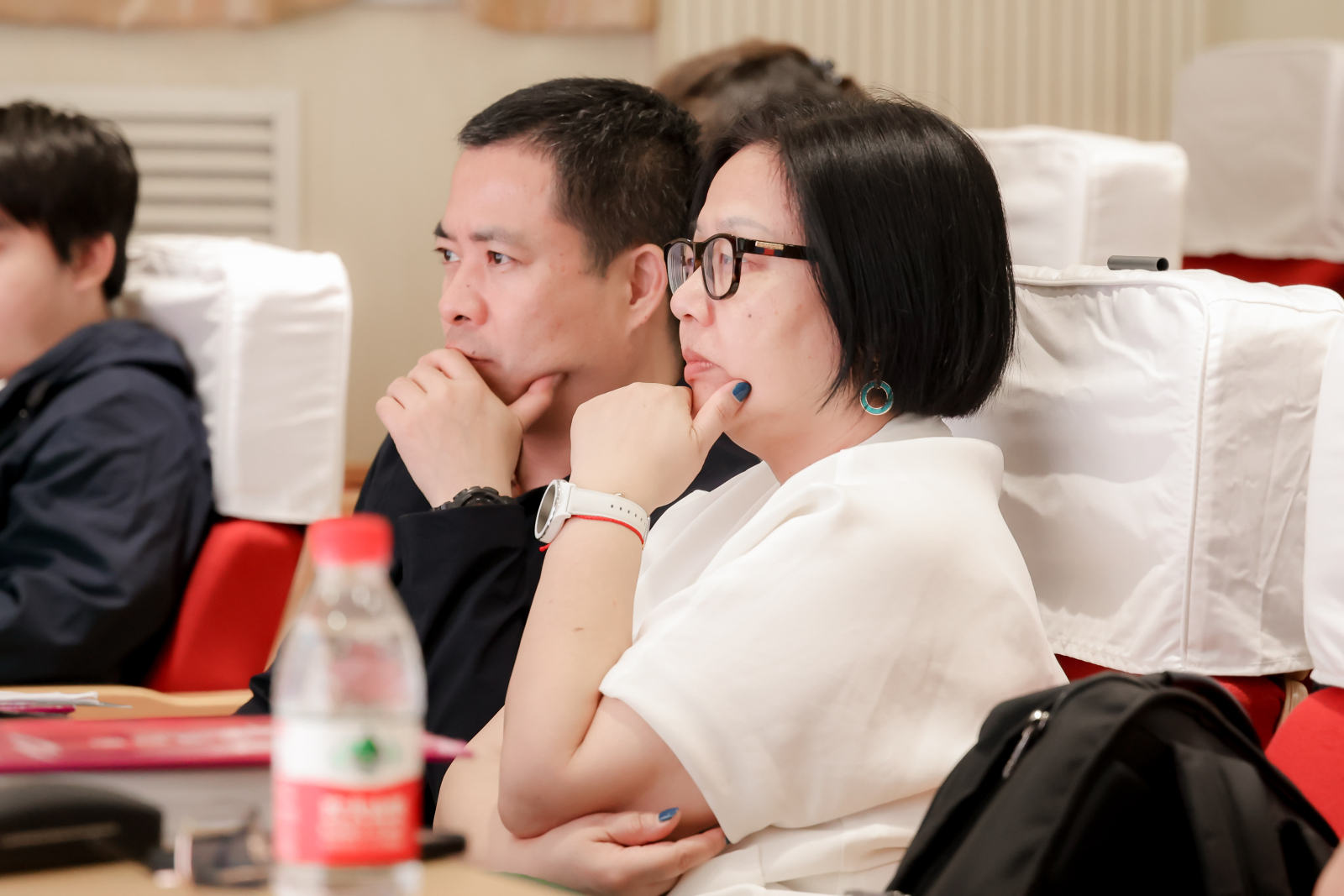
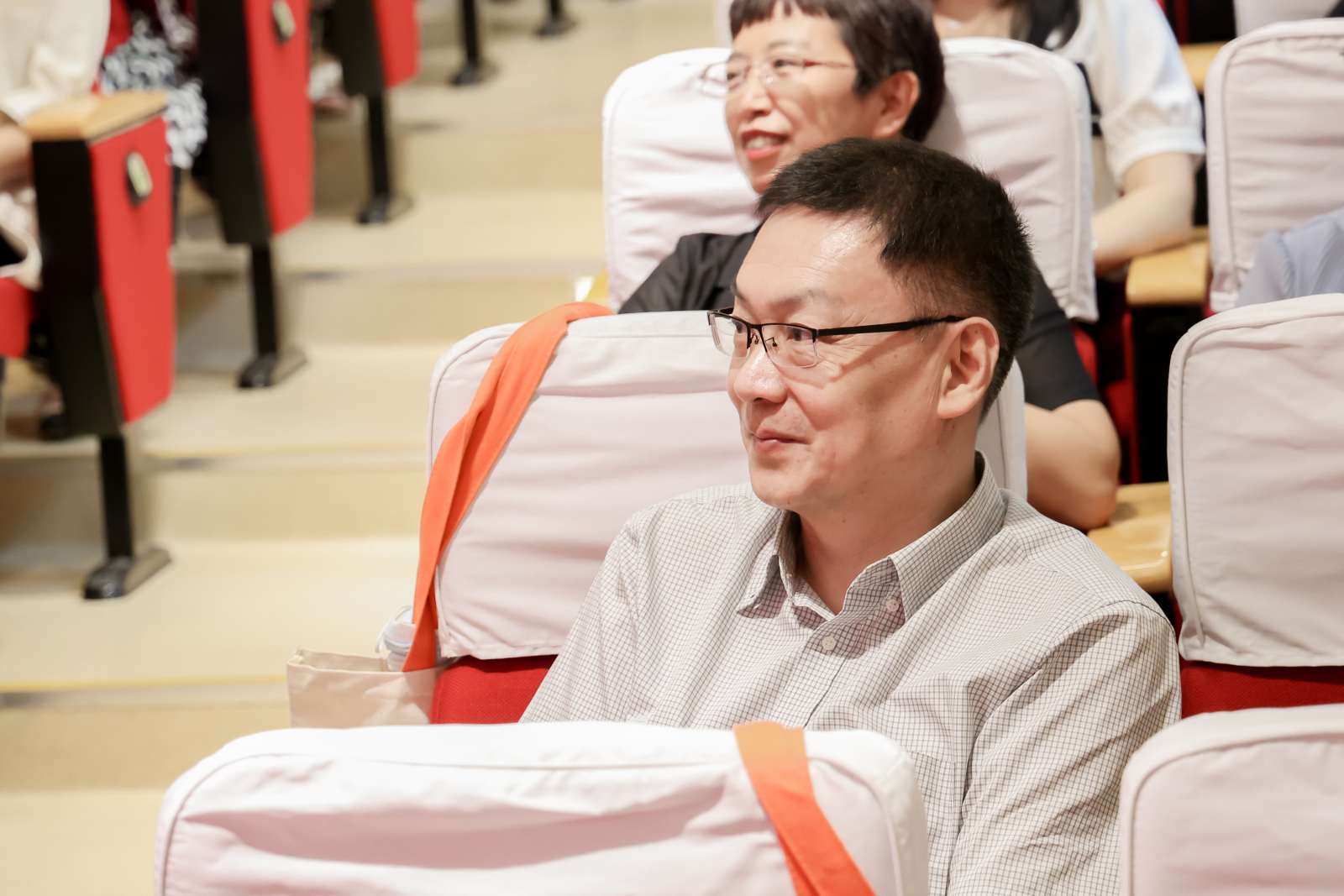
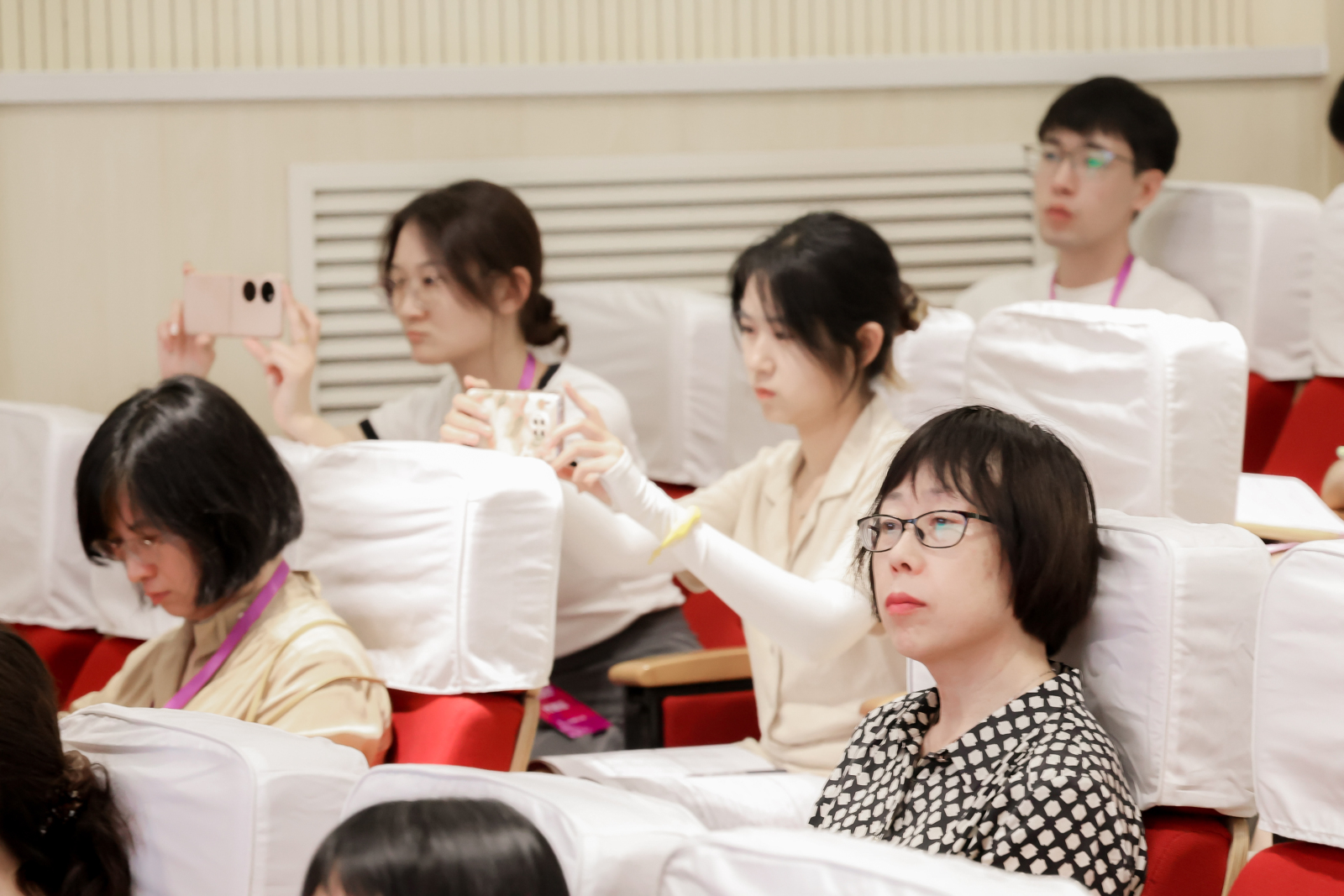
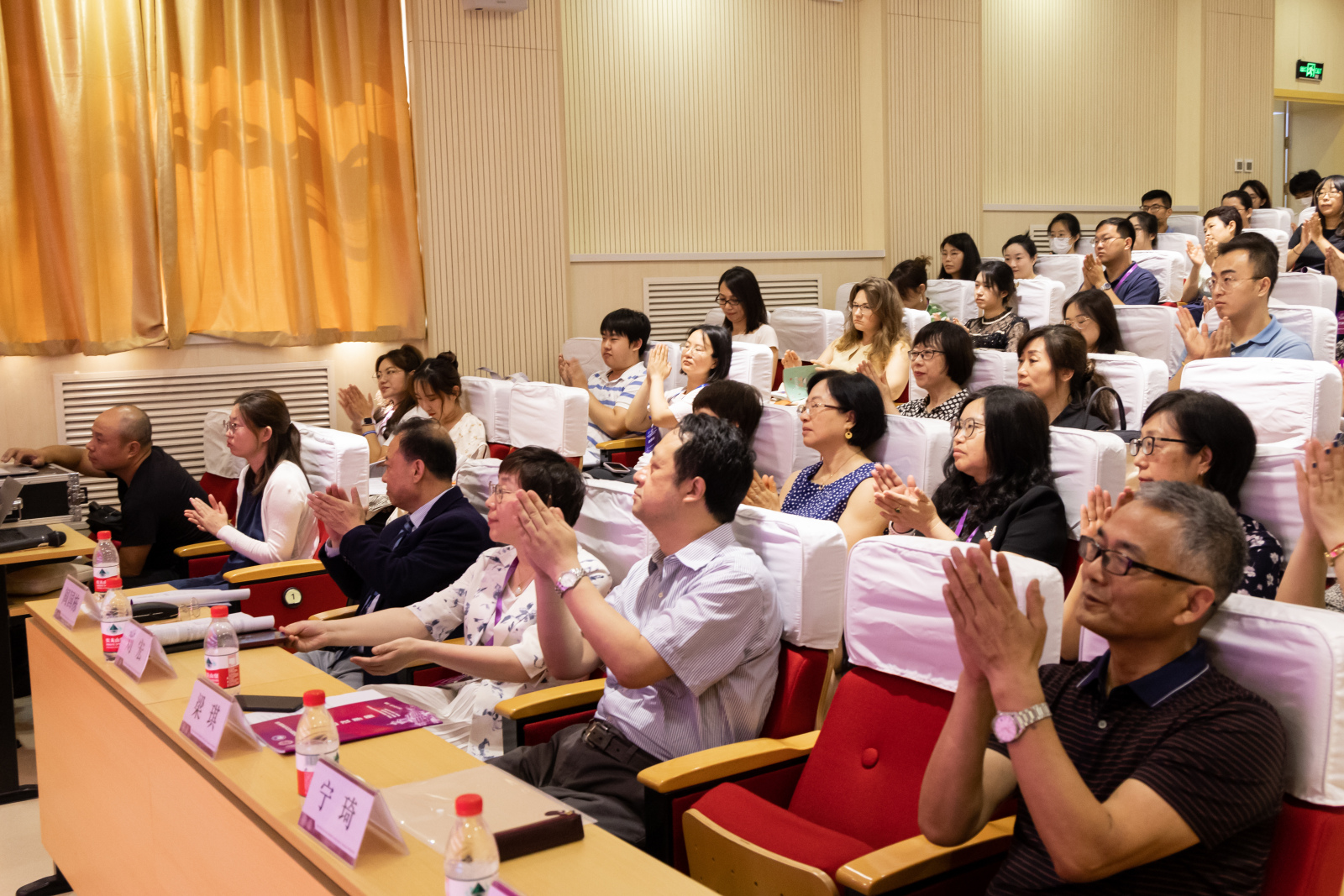
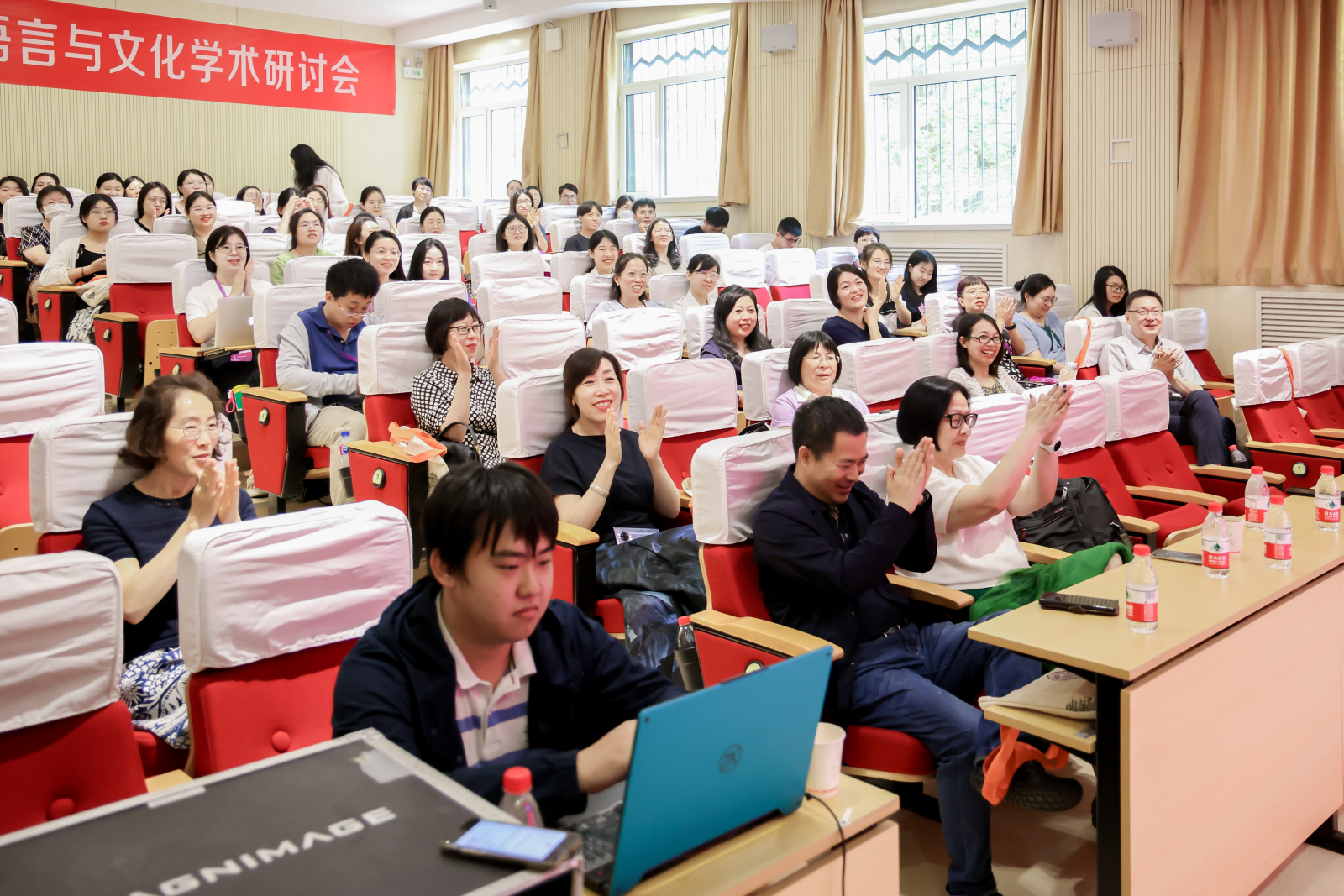
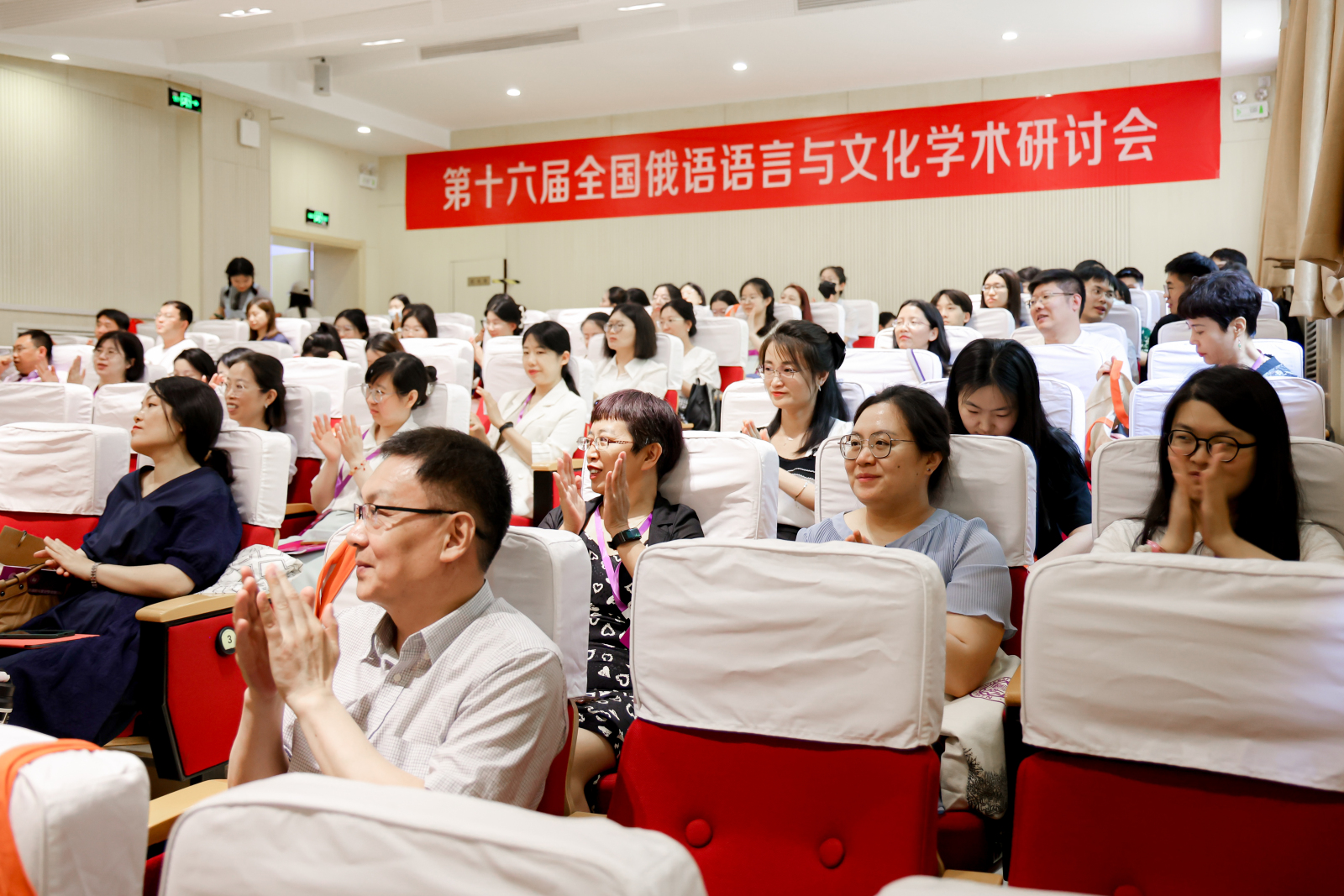
On the morning of June 18, Jin Mingji, researcher and professor at the Center for Russian Language Literature and Culture Studies of Heilongjiang University, introduced the Russian Sinologist Maldenov's study of Confucian utopian thought. Professor Yang Ke from Guangdong University of Foreign Studies shared his report on the universal laws and national characteristics of metaphor systems. Professor Liu Zuoyan from Jilin University discussed the national worldview embodied by the concepts of “circle” (“Yuan”) and “square” (“Fang”) in China and Russia. Professor Tao Yuan from Southeast University reviewedand commented on the large-scale project “Oral History of Russian Sinologists” of the Institute of Oriental Studies of the Russian Academy of Sciences. The report of Professor Wang Sen from Zhengzhou University investigated the spread of American educationist Dewey's thought in the Soviet Union and emphasized the two-way interaction of cultural exchanges. The report of Professor Guan Xiujuan of Heilongjiang University expounded on the great contribution made bythe Russian Sinology study to cultural exchanges between China and Russia. The final keynote speech of the symposium was delivered by Professor Wang Lidan from Nankai University. She explained the impressive points of American journalist and socialist John Reed's non-fiction work Ten Days that Shook the World and the play of the same name adapted by Lyubimov.
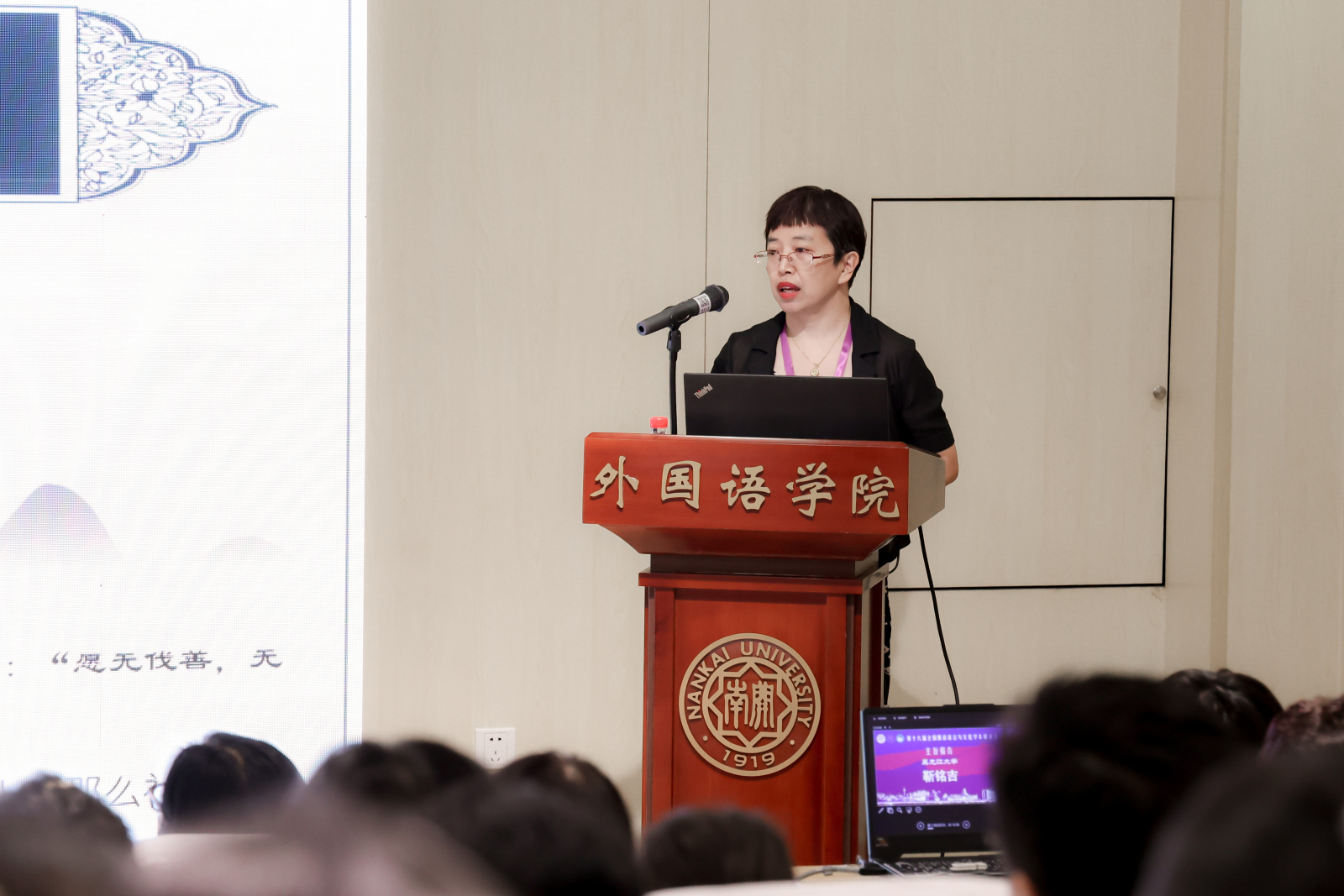
Professor Jin Mingji
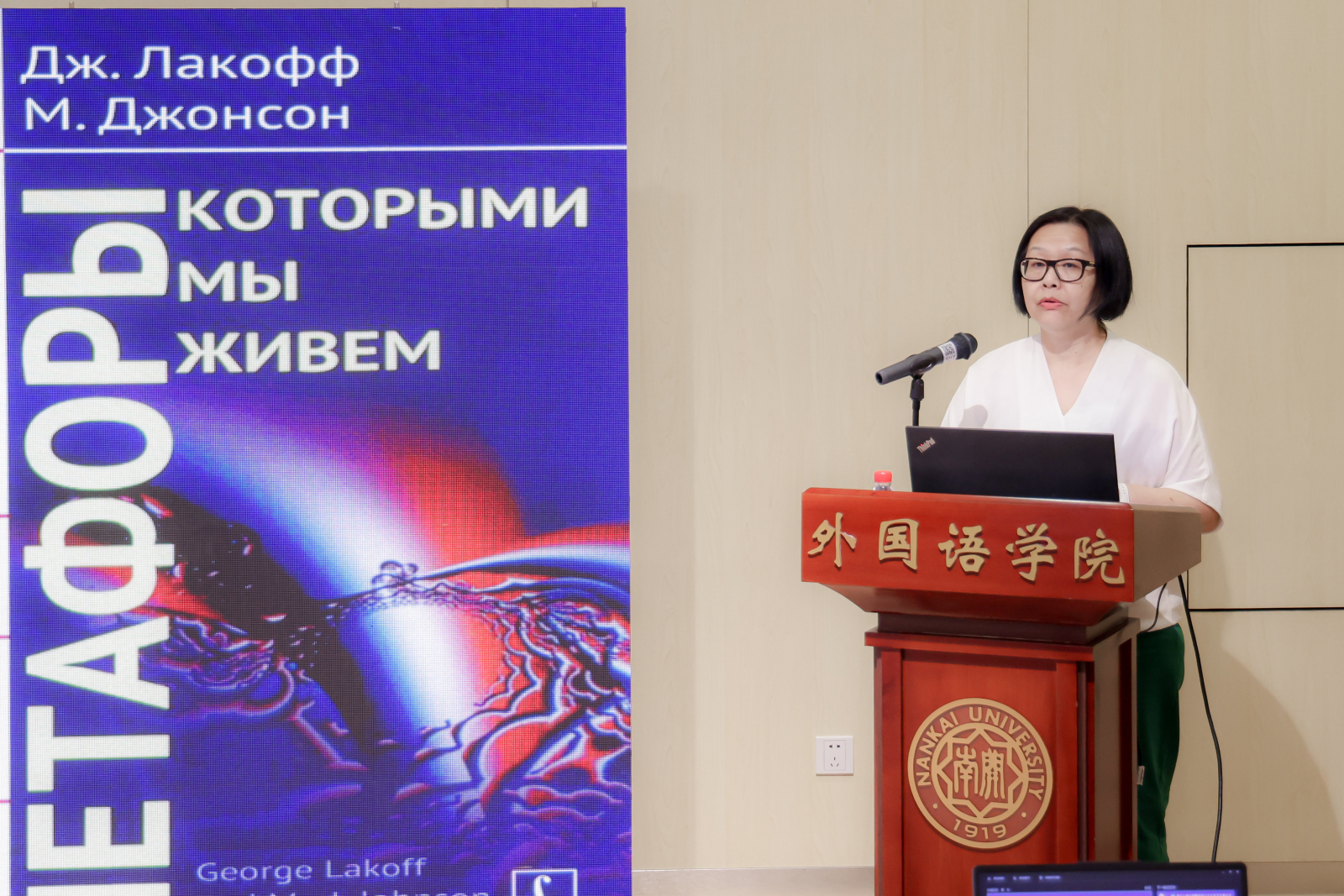
Professor Yang Ke

Professor Liu Zuoyan
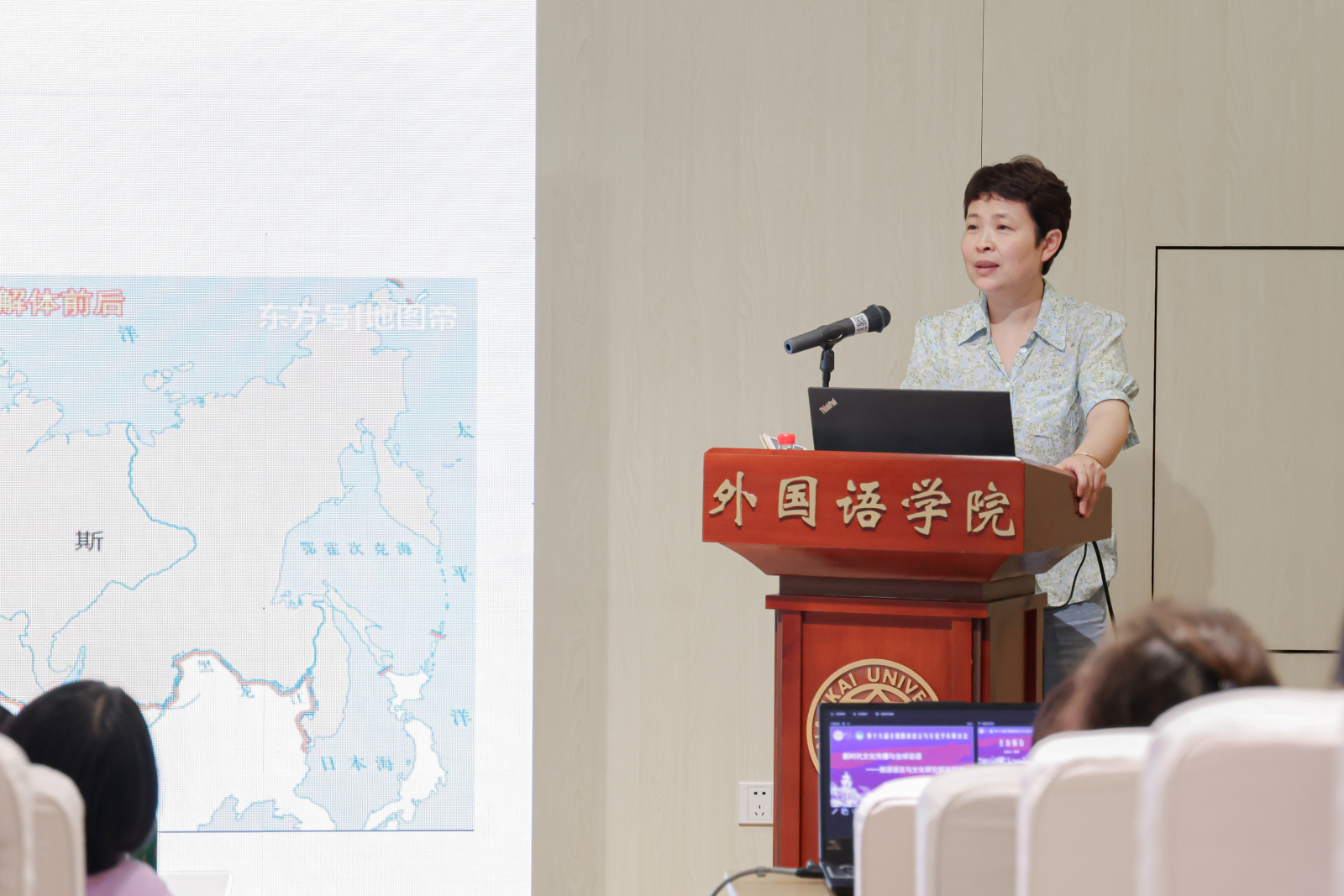
Professor Tao Yuan
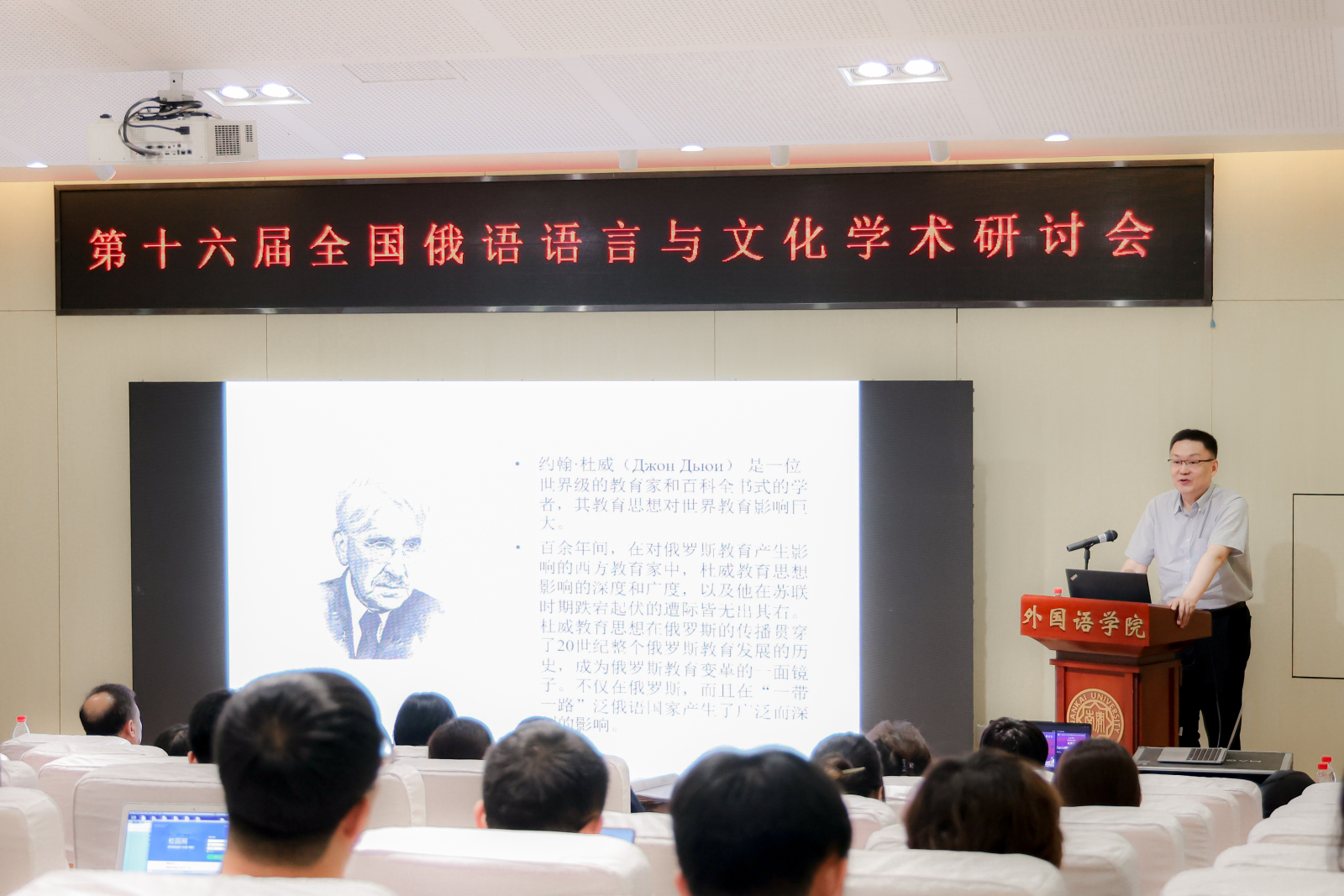
Professor Wang Sen
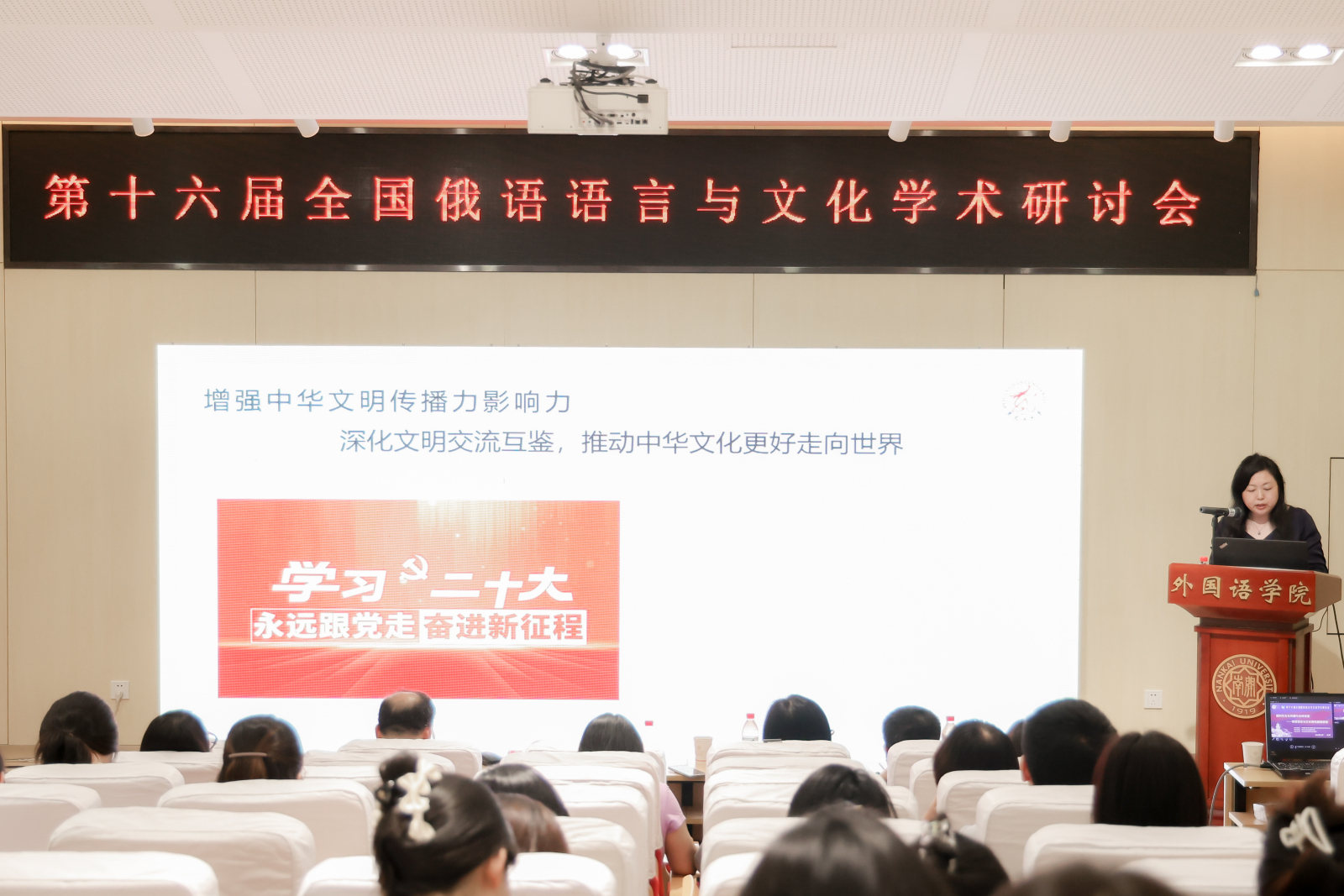
Professor Guan Xiujuan

Professor Wang Lidan
Group reports
The session of group report was held on the afternoon of June 17 inJiye Hall, Liangzheng Hall, Chen Kui Hall, Wuji Hall, and Yuelan Hall of the College. Renowned scholars, young teachers, and postgraduate and doctoral students from universities across the country held heated discussions on five topics: "Russian Language Teaching and China-RussiaCultural Discourse in the New Era", "Interdisciplinary Research on Russian Language, Culture, and Cognition", "Russian Literary Discourse and Literary Texts", "Cultural Translation between Chines and Russian", and "Russian Sinology and China-Russia Cultural Exchange".
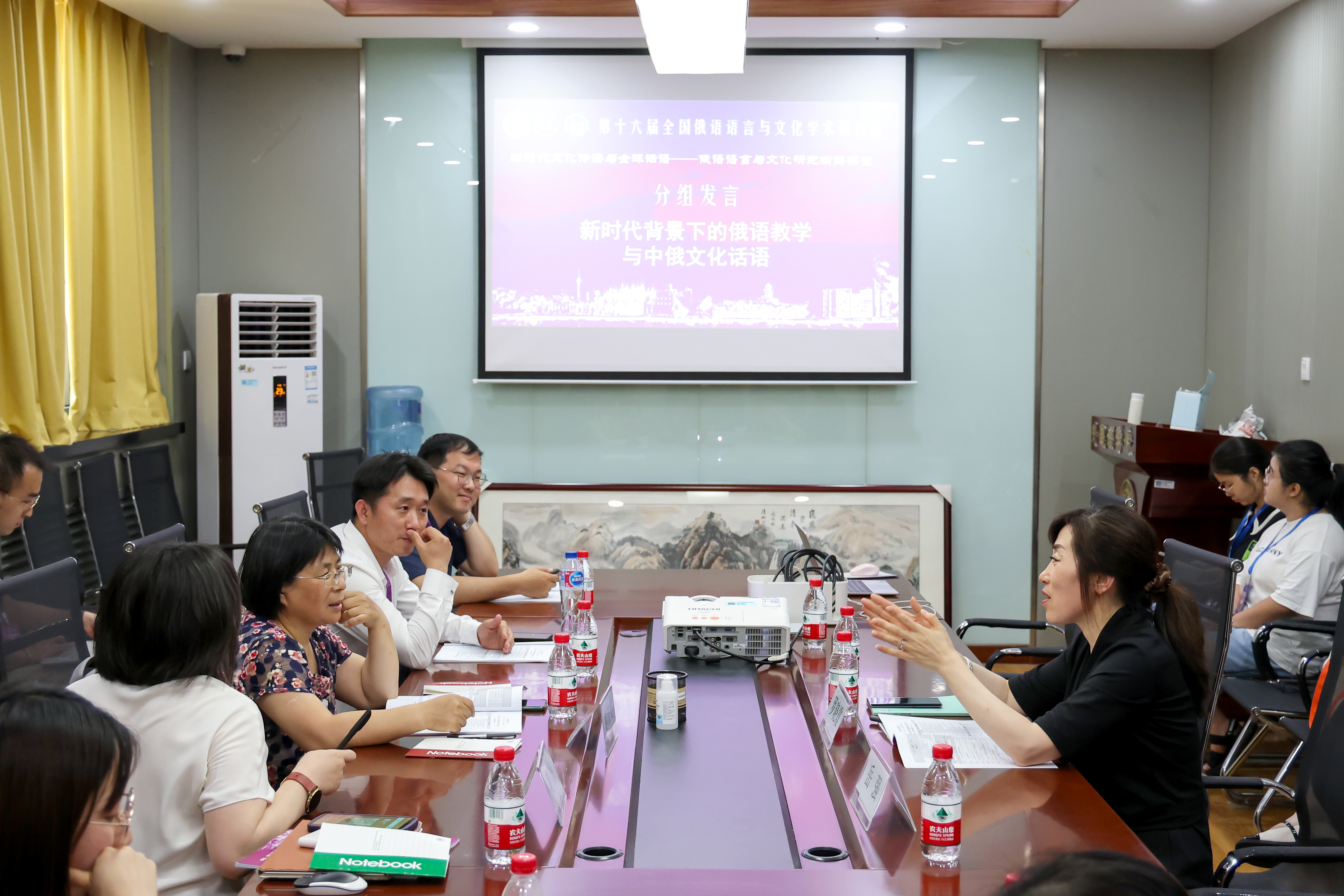
Group One
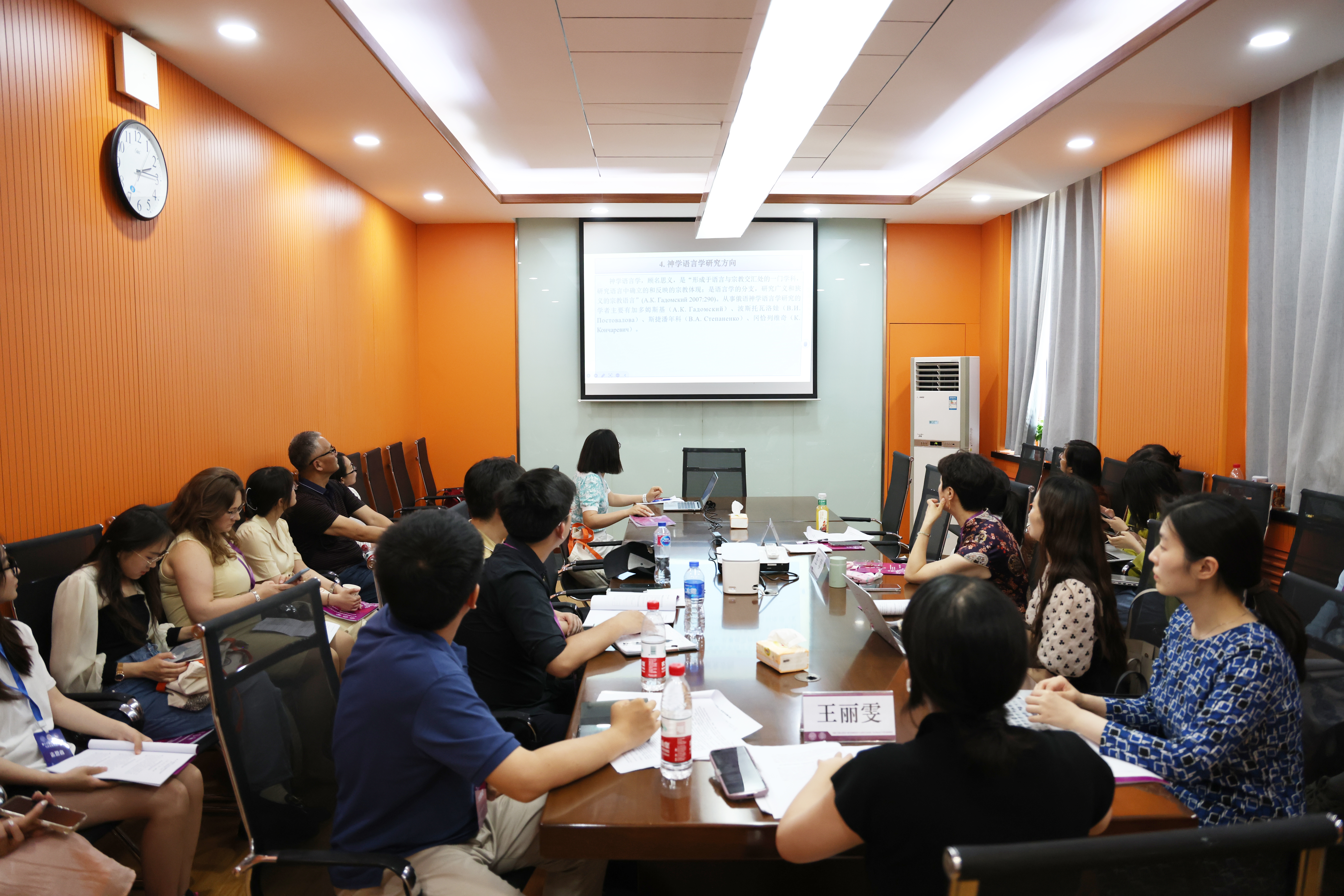
Group 2
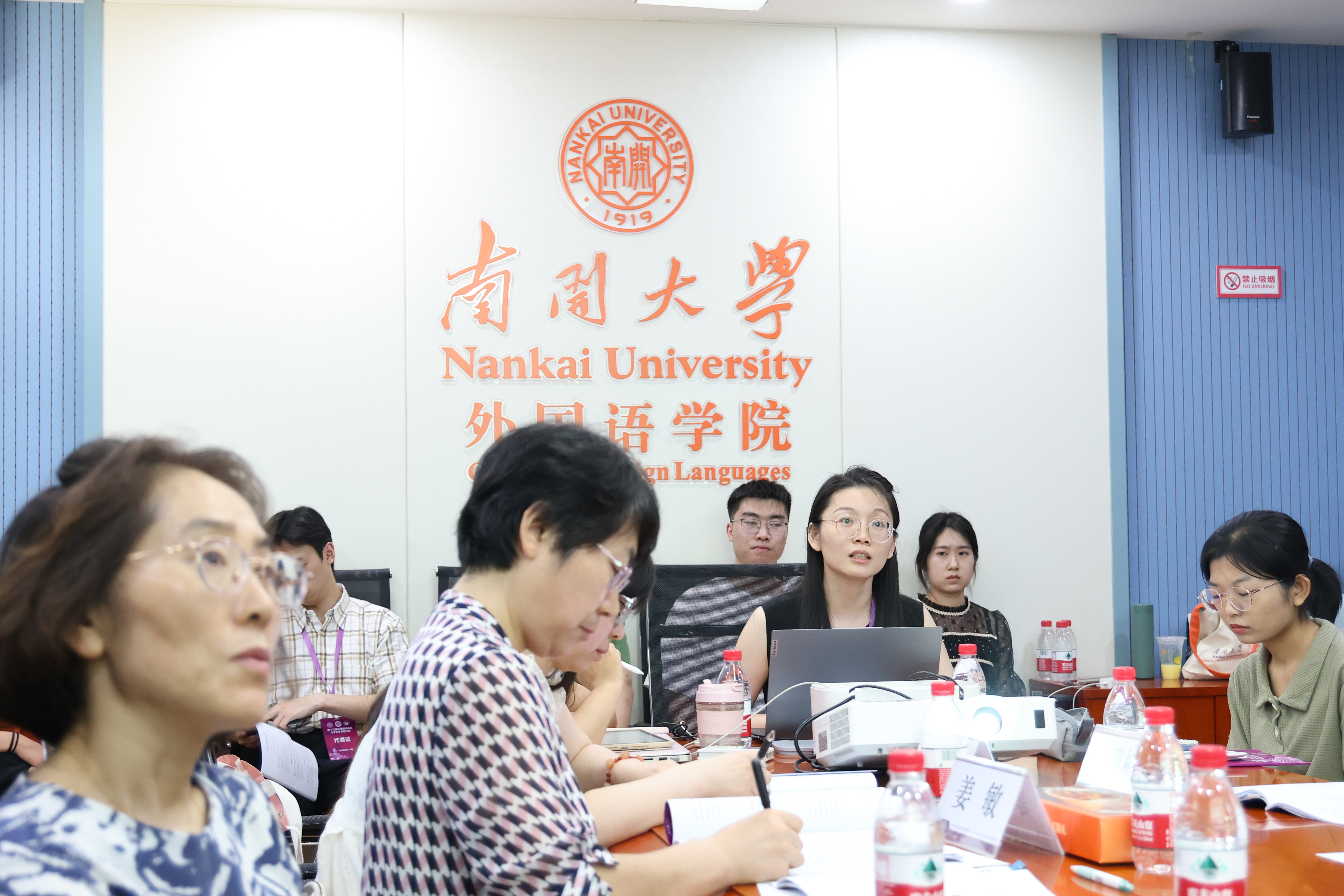
Group Three
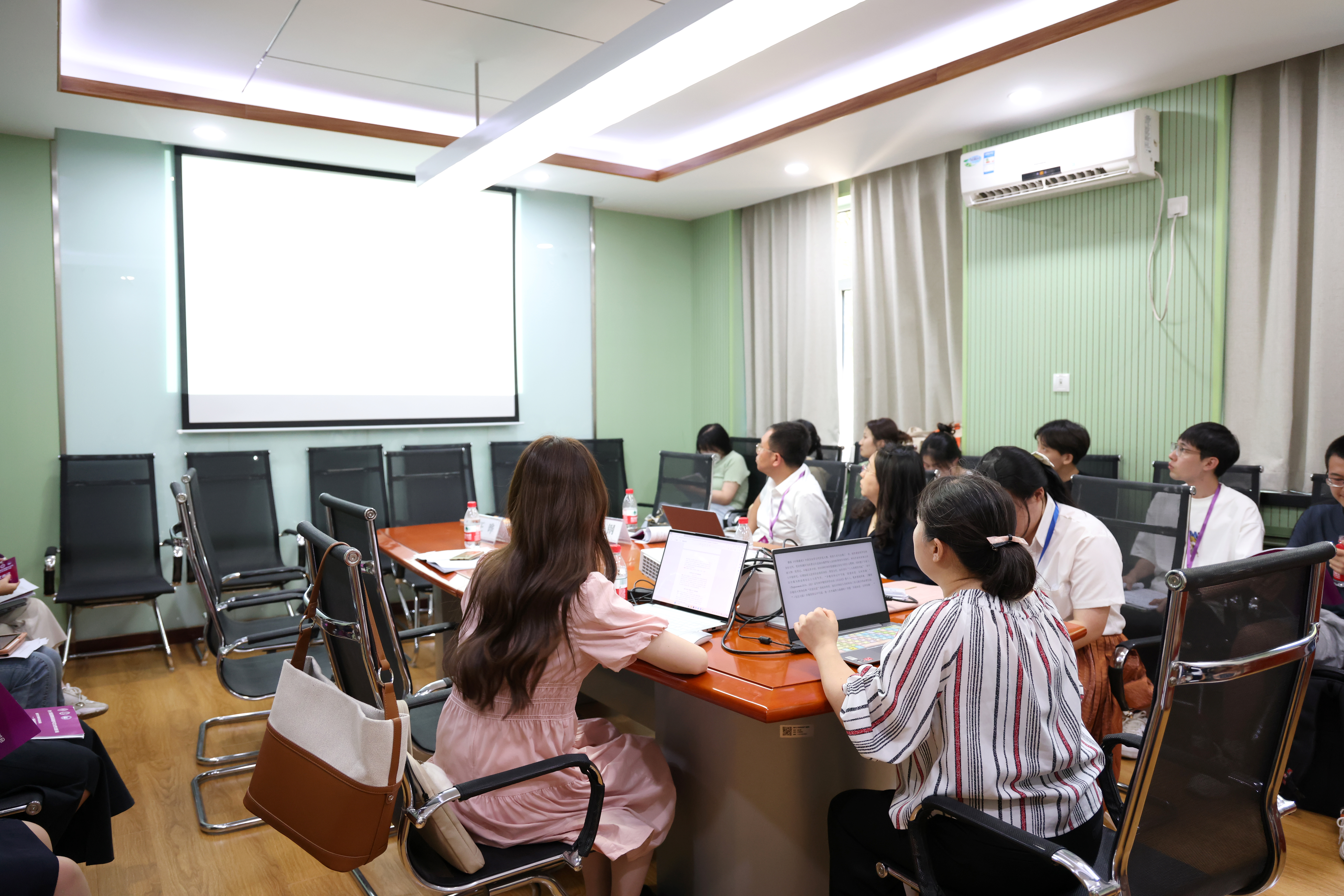
Group Four
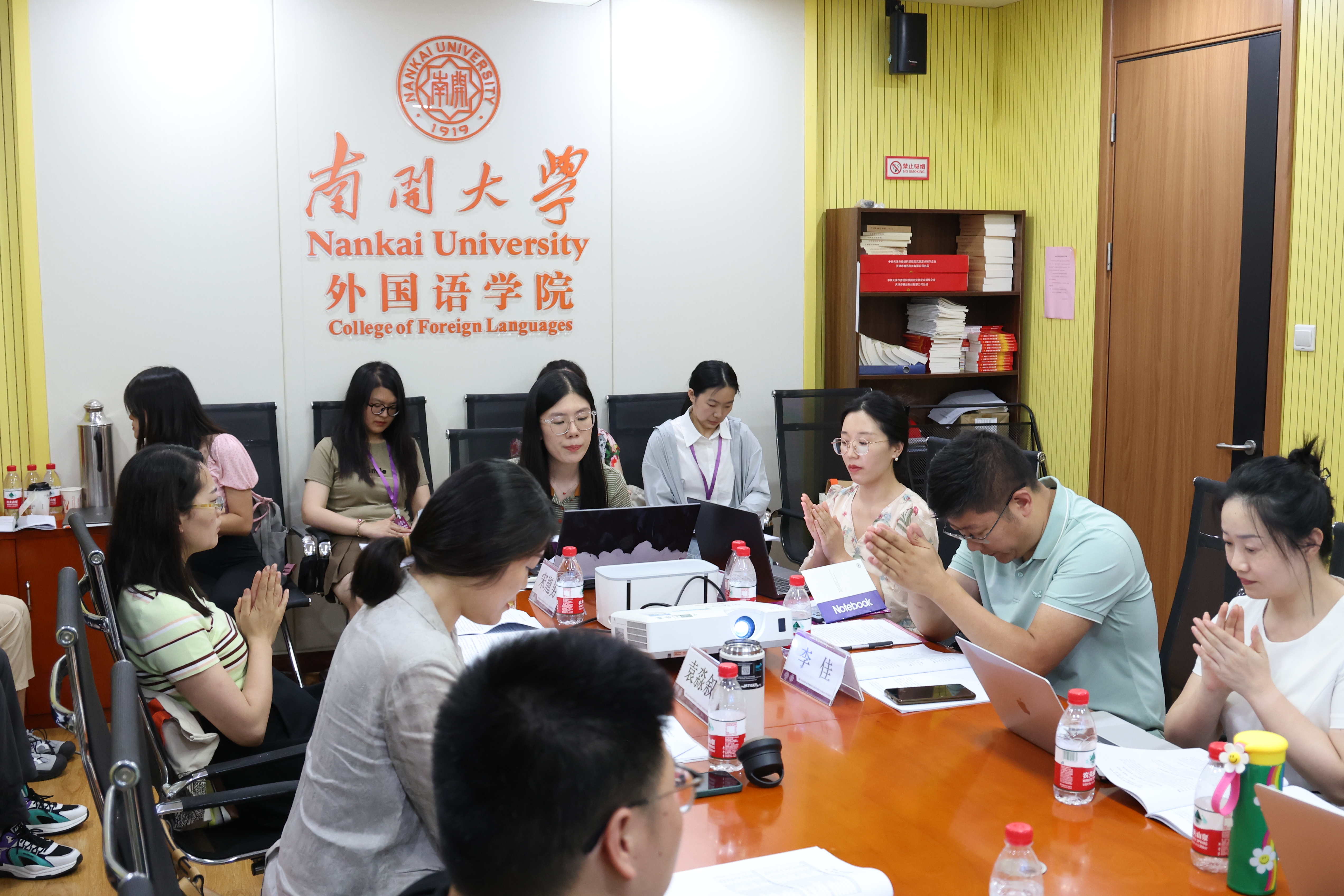
Group Five
The Closing ceremony
The academic feastlasted for one and a half days. On the morning of June 18, the seminar came to an end in the academic lecture hall of the College. At the closing ceremony, Professor Luo Xiaoxia from Tianjin Normal University, Associate Professor Wang Rong from Beihang University, Associate Professor Wang Gang from Dalian University of Foreign Languages, Associate Professor Yuan Miaoxu from Zhejiang University, and Liu Ziyuan from Jiamusi University respectively made a summaryof each sub-symposium. They agreed that this seminar features a wide range of new fields and diverse perspectives with a large number of participants.The speaker's enthusiasm reflects the great academic interest of a new generation of Russian researchers. In such an atmosphere, Russian language and culture study in China will take a new step. The participants also appreciated thehard work, careful preparation, and thoughtful service of teachers and students from Nankai’s Russian Department.
Professor Yan Guodong, Dean of the College of Foreign Languages of Nankai University, then delivered a closing speech. He first expressed his congratulations on the success of the symposium and his gratitude to all the participants. Heattributed the success of this academic event to the support of Professor Ning Qi, Professor Liu Hong, Professor Peng Wenzhao, and other experts nationwide.
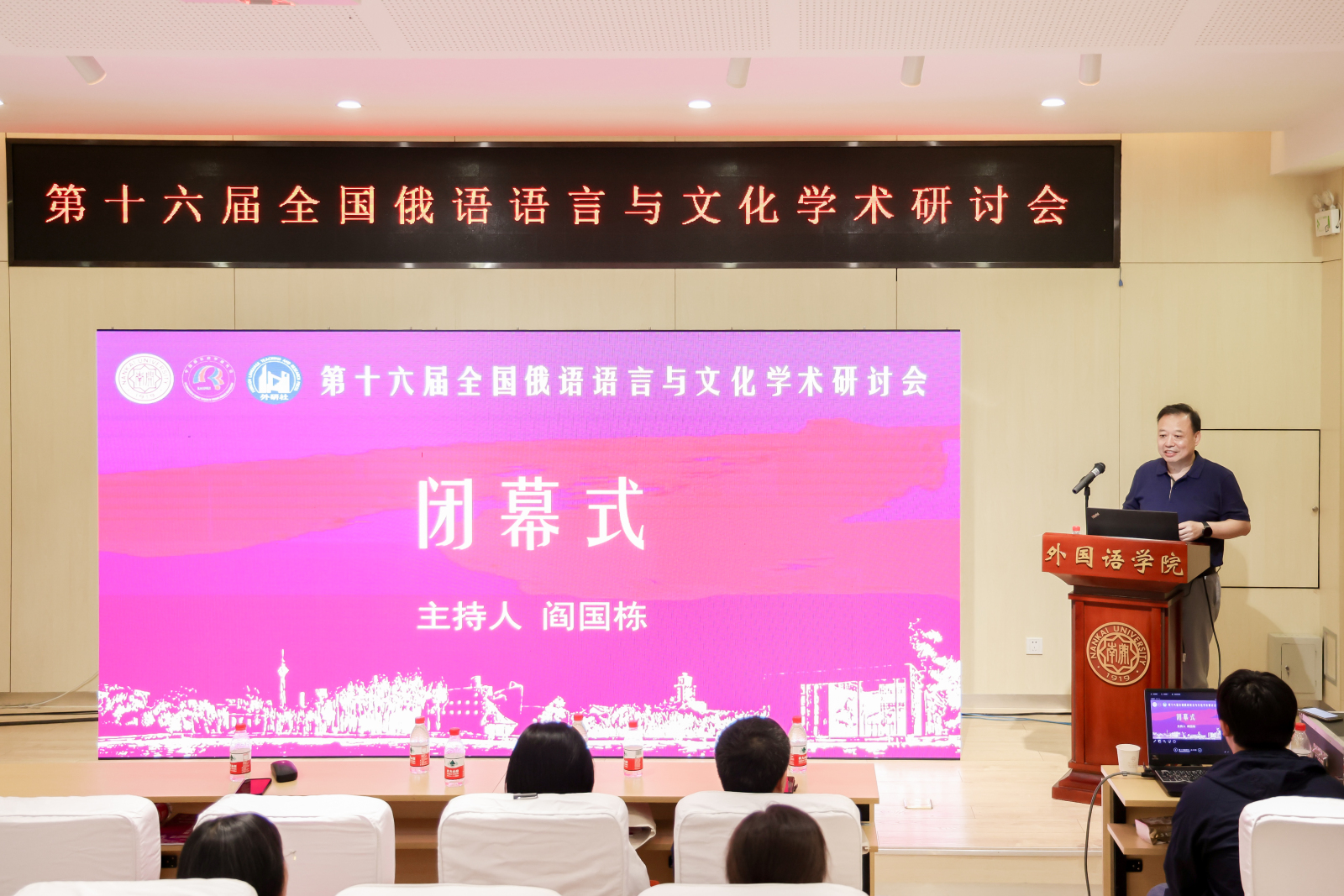
As an academic feast with height, breadth, depth,and warmth, this year’s symposium will leave an impressive mark on the history of the Russian language and culture study in China. The symposium’s success can enhance the communication between Chinese researchers and help the integration of the foreign language discipline. It can further strengthenthe construction of the teaching and research system of the Russian language and culture with Chinese characteristics and promote the mutual learning of language and culture between China and Russia.
